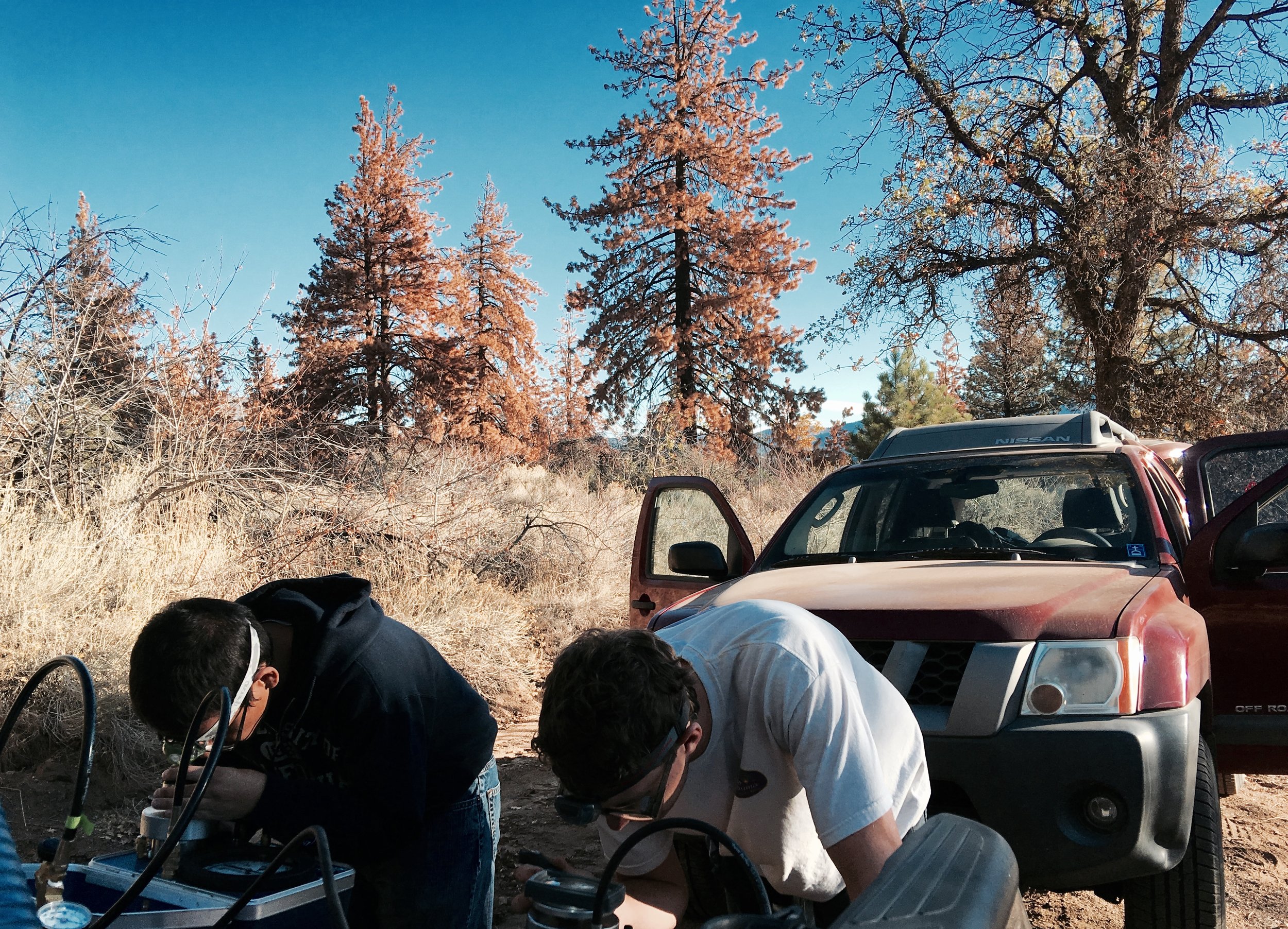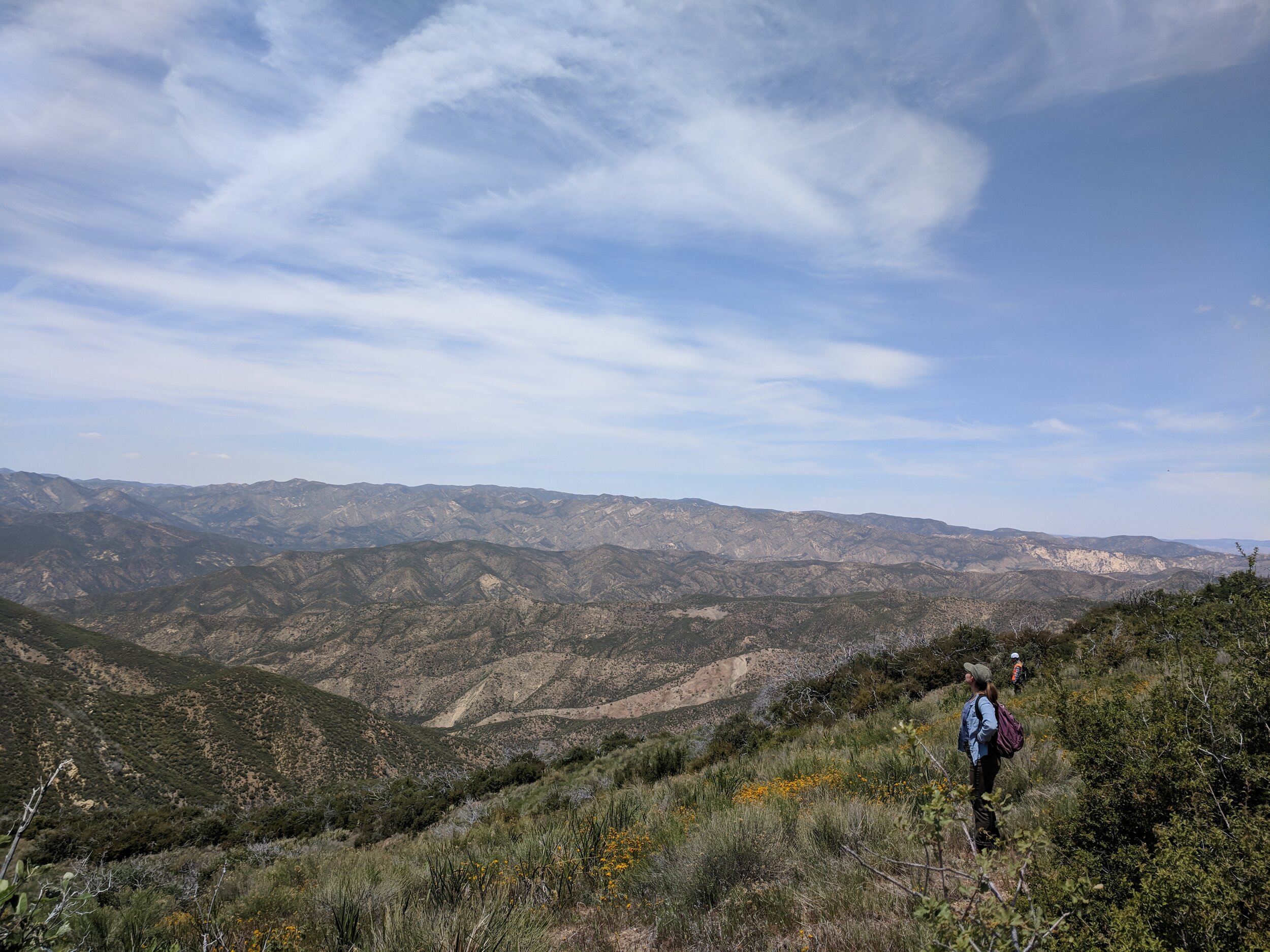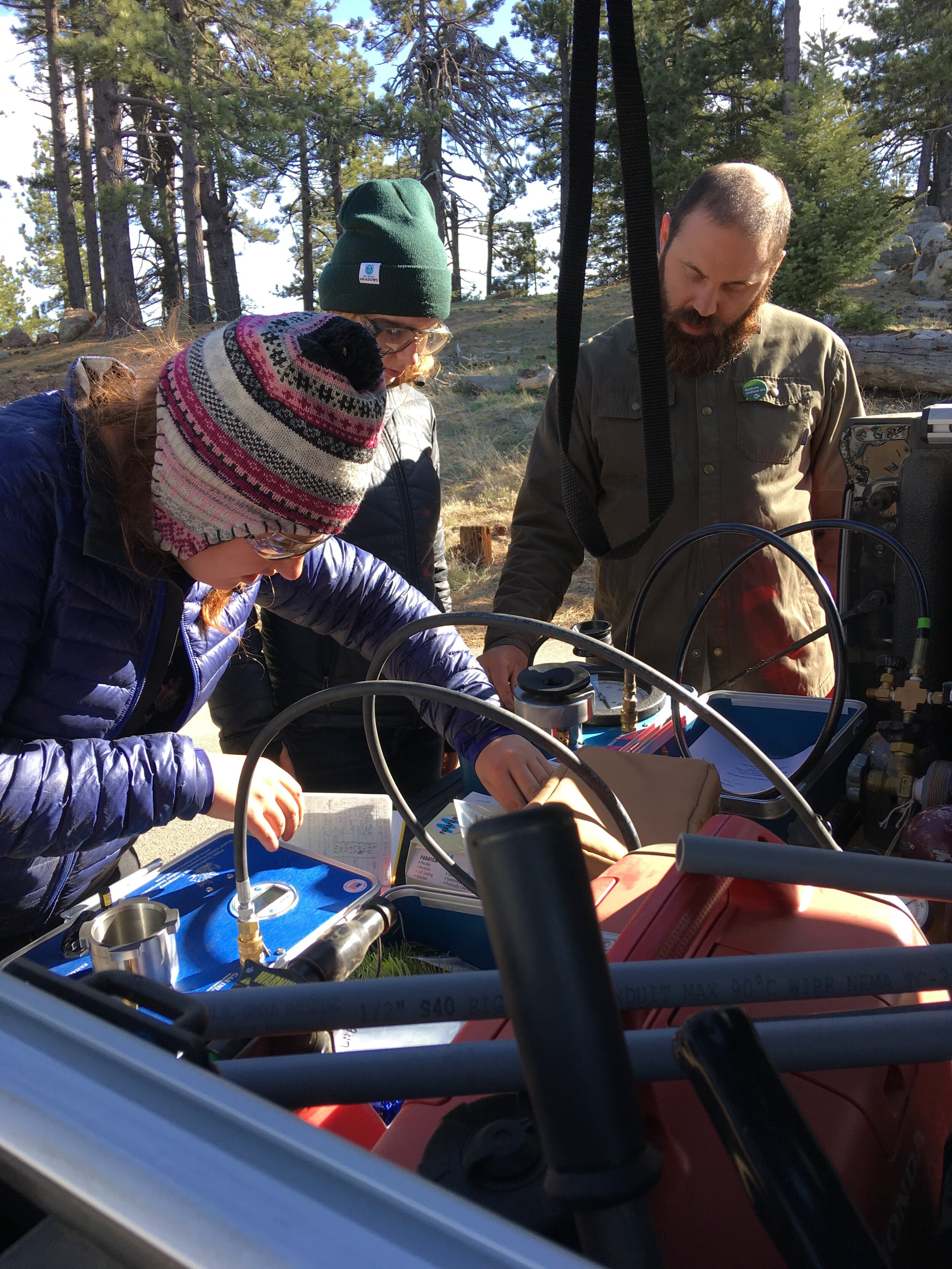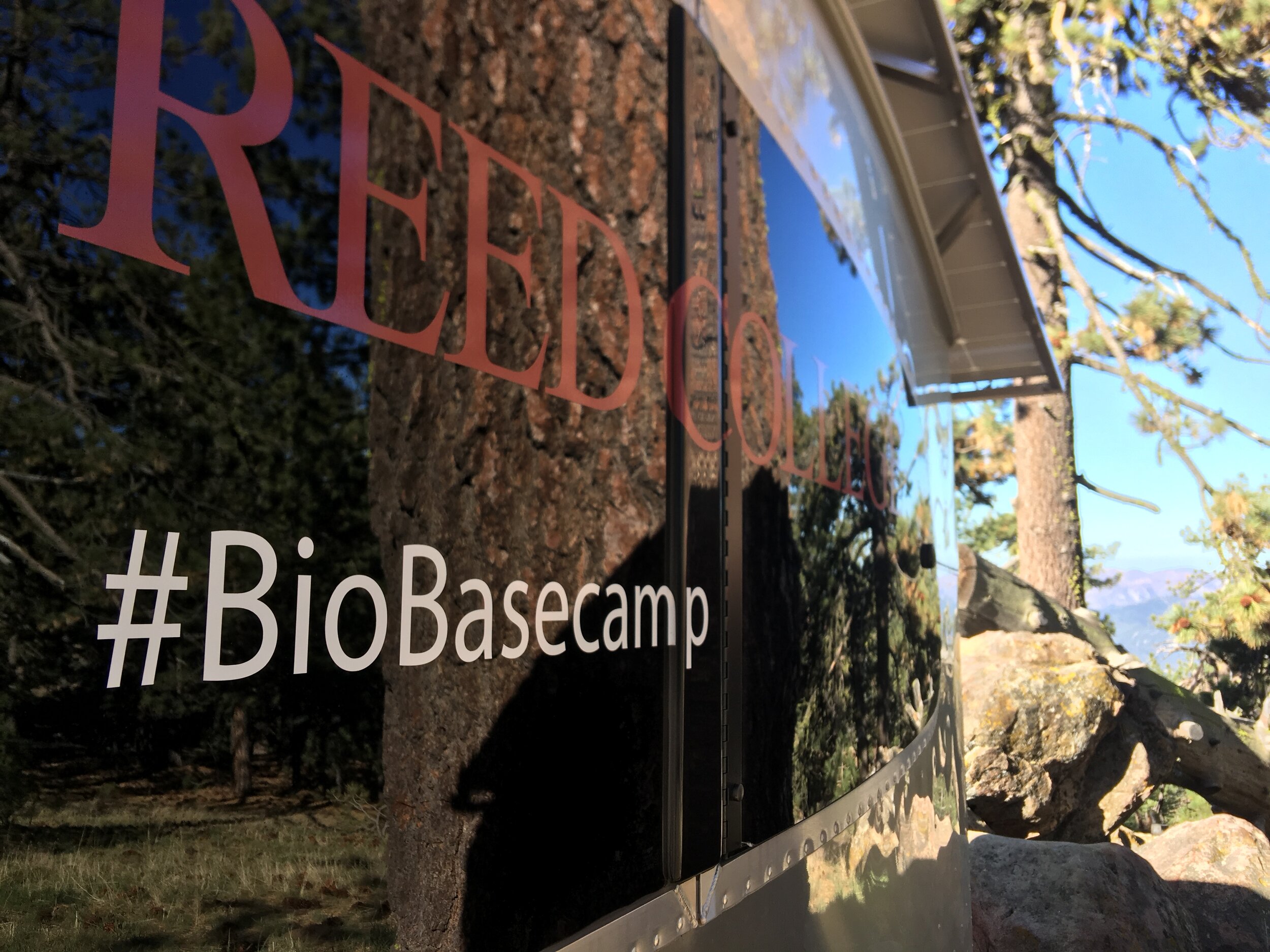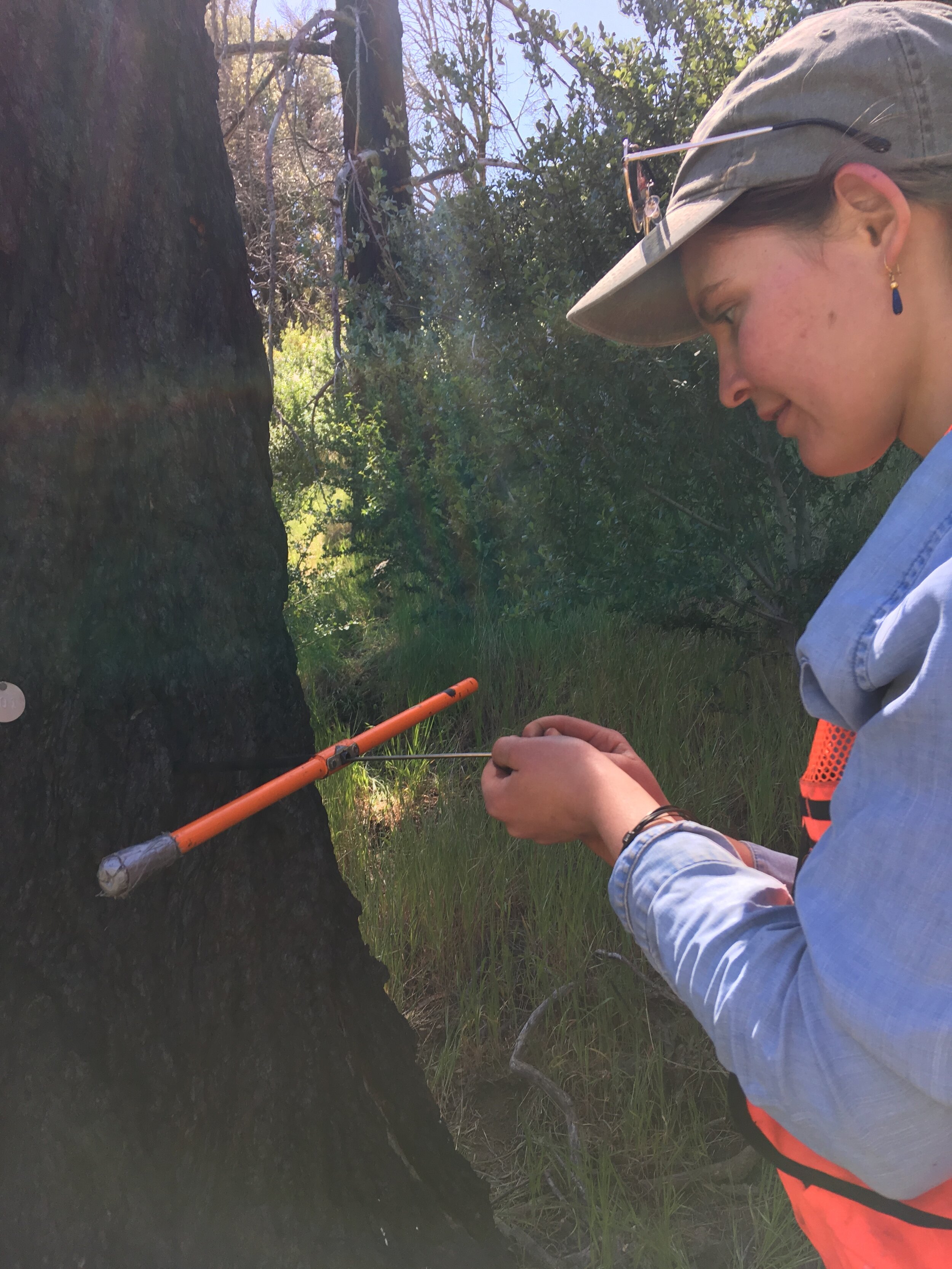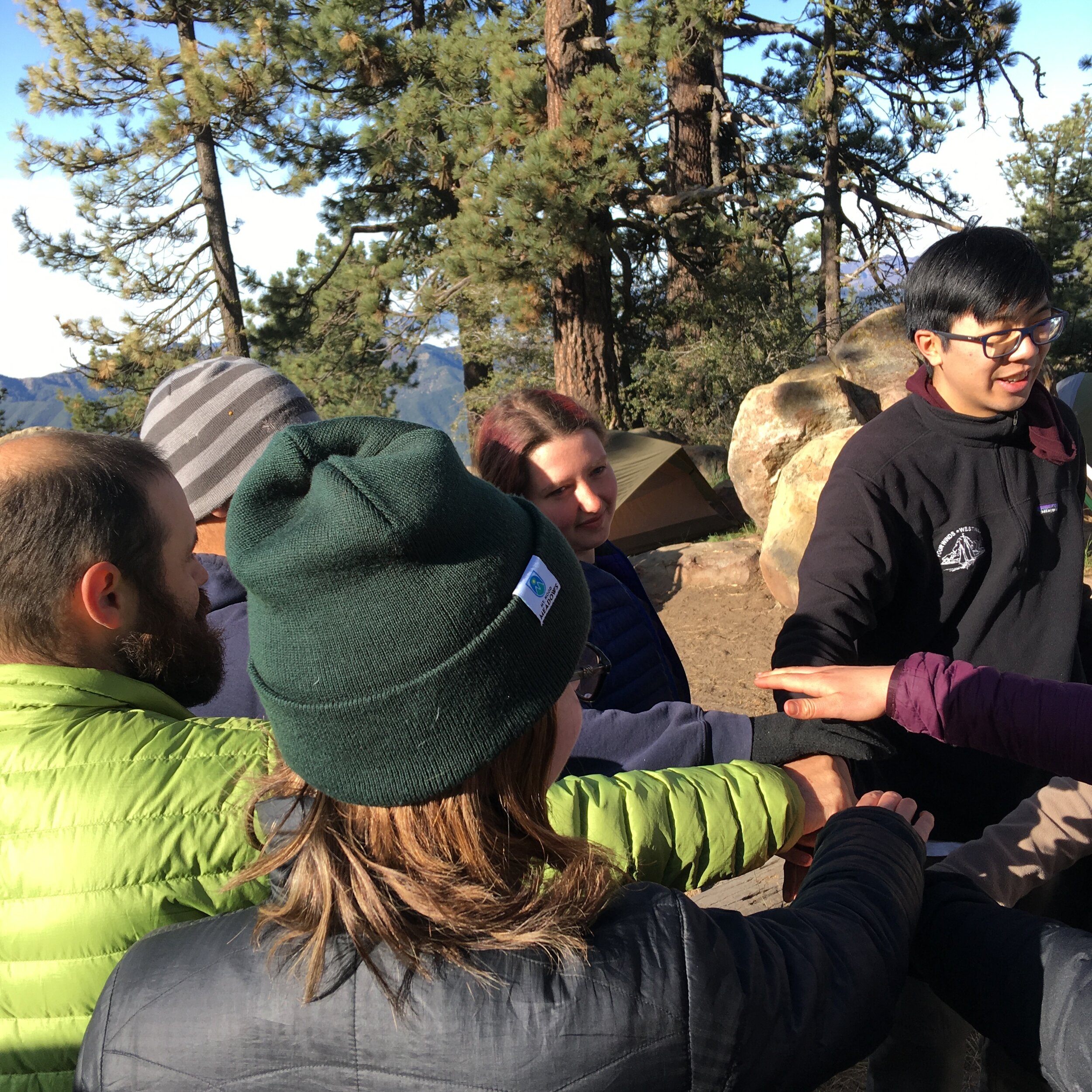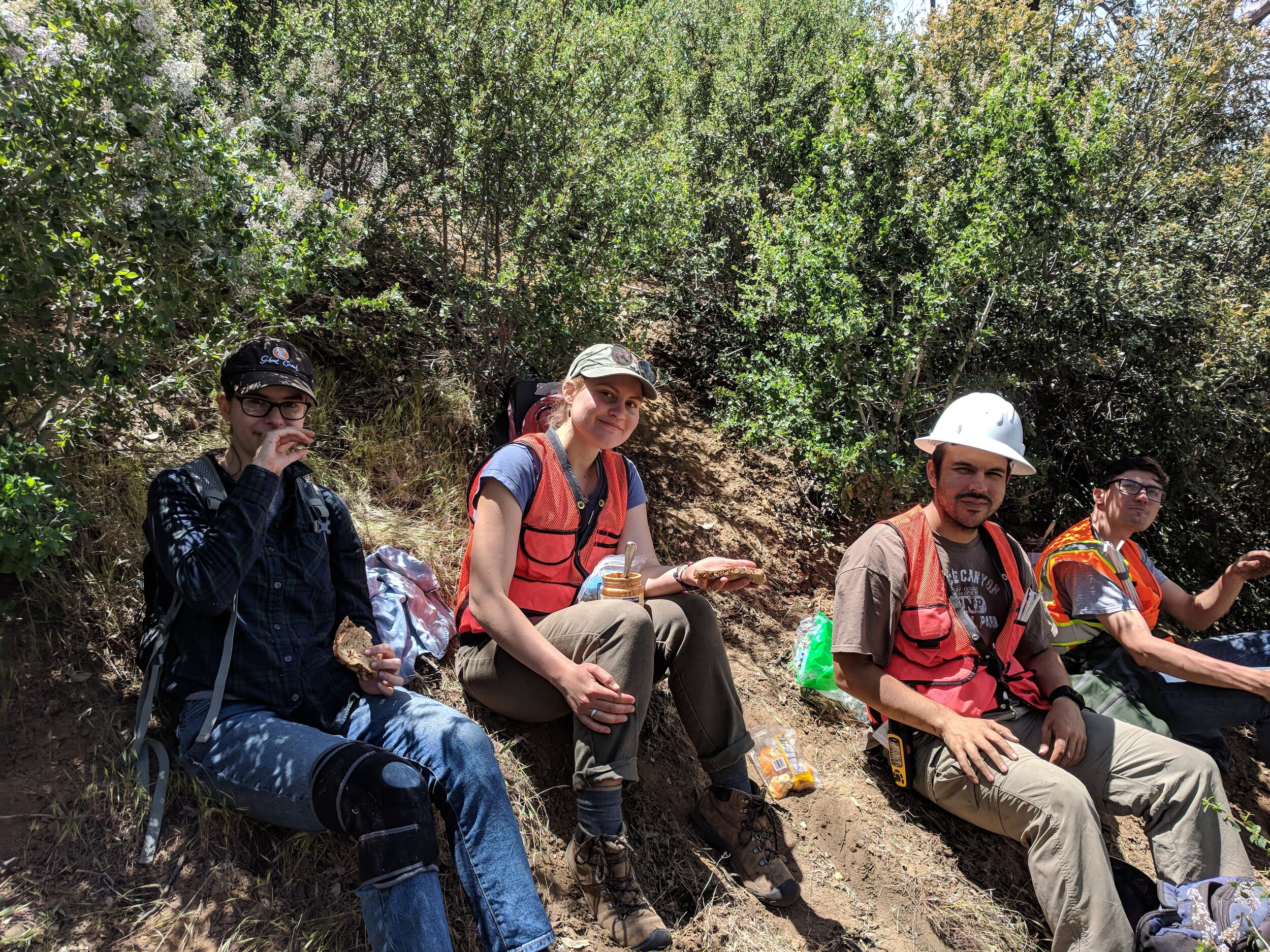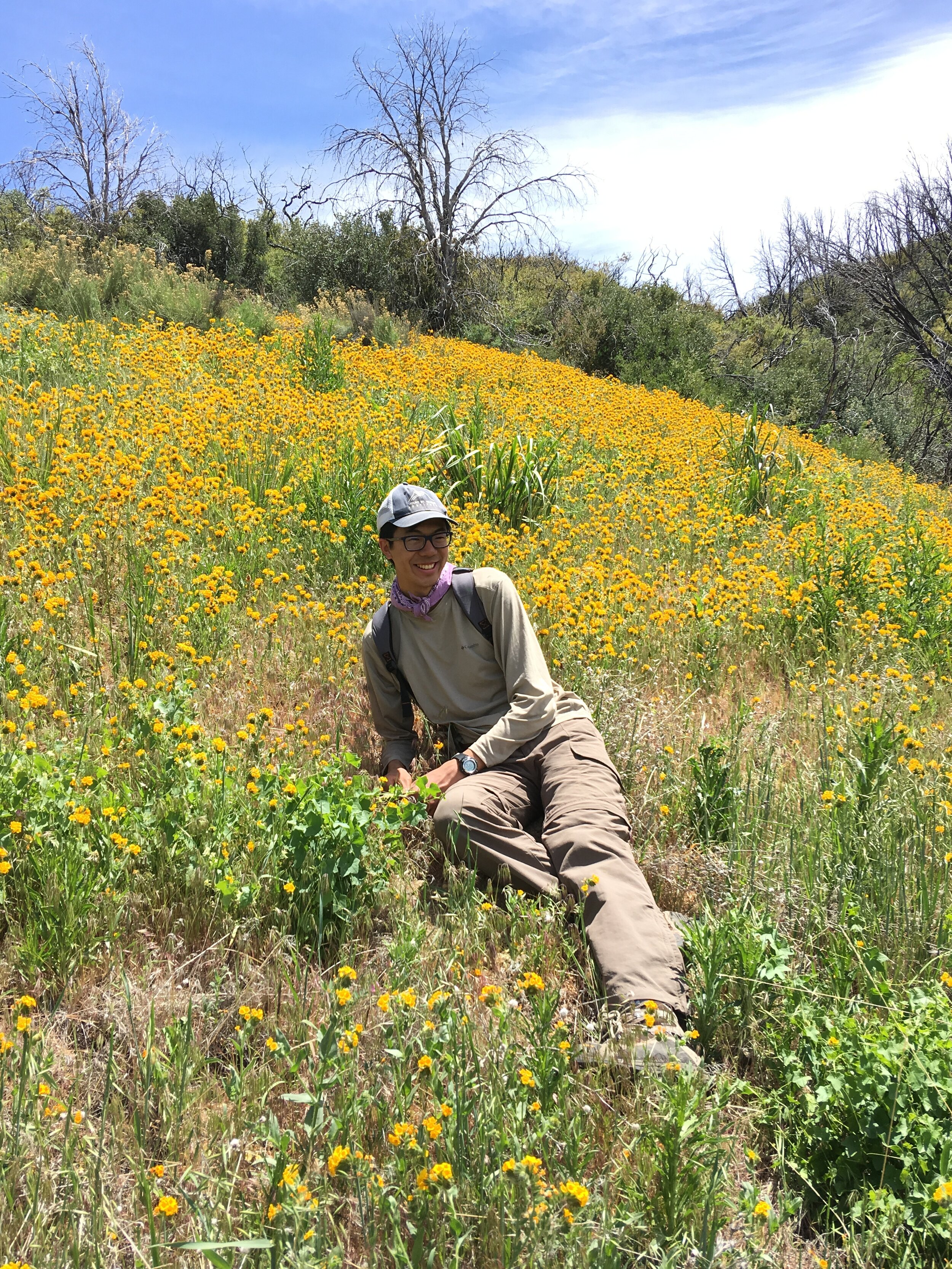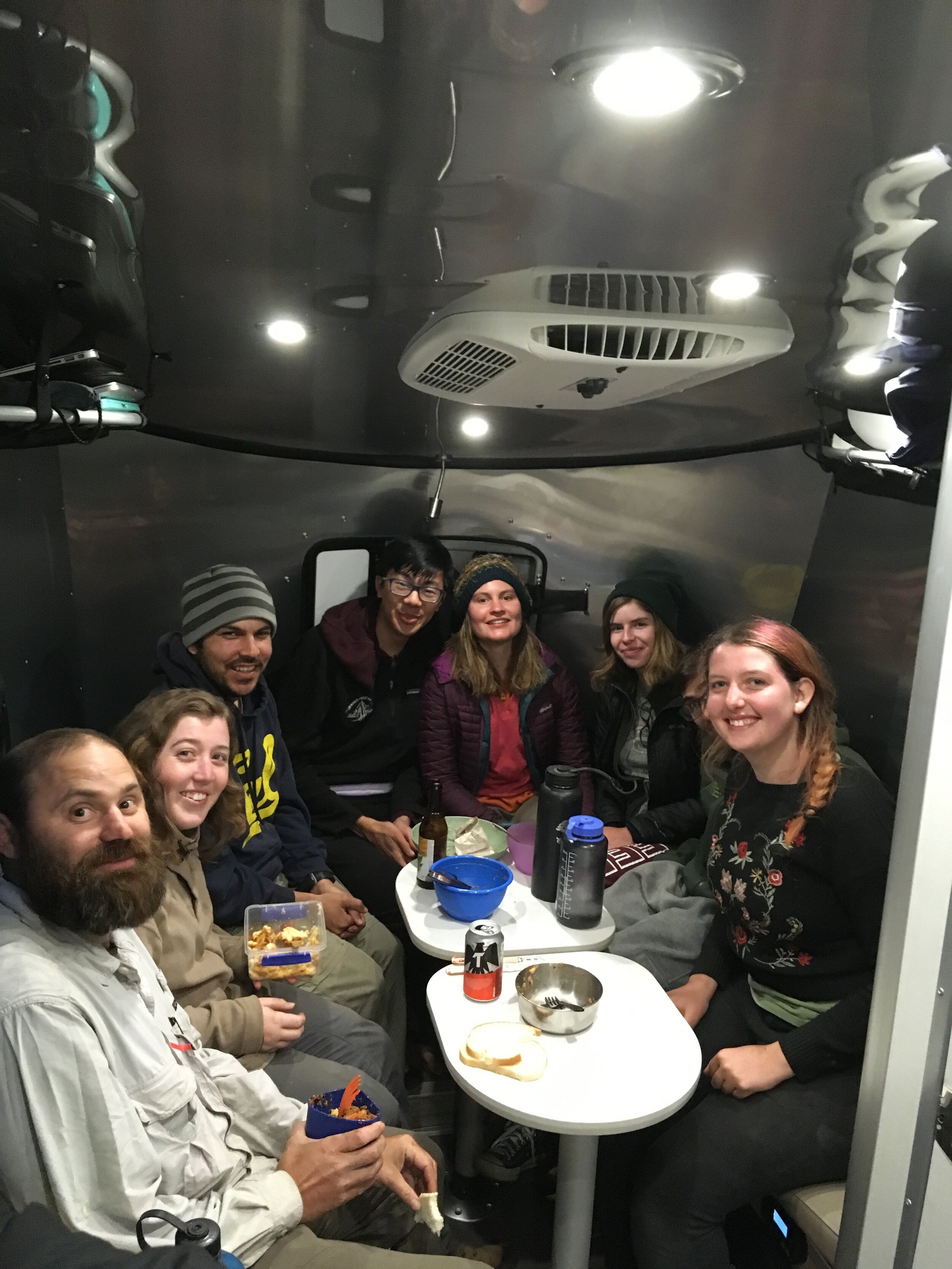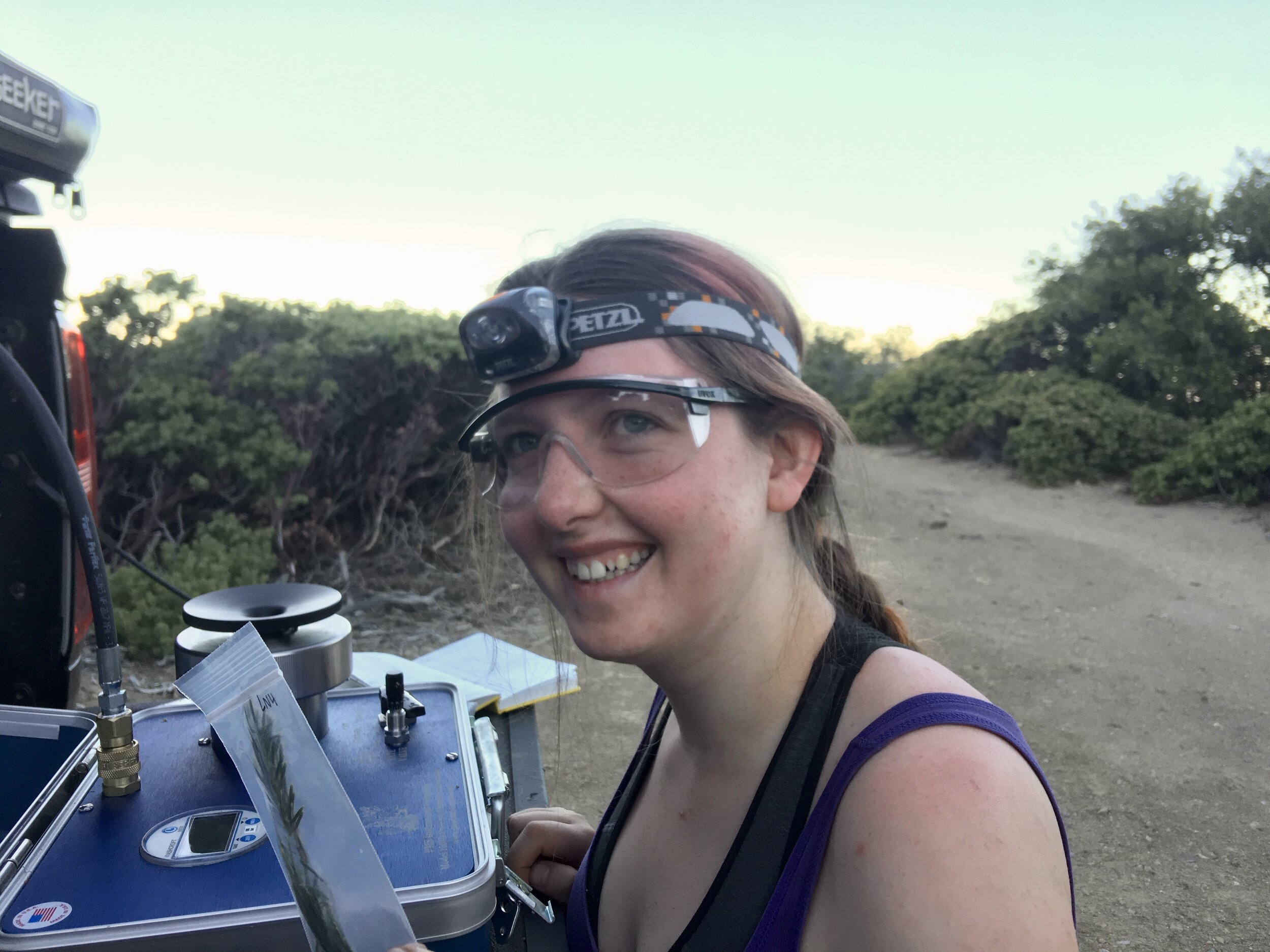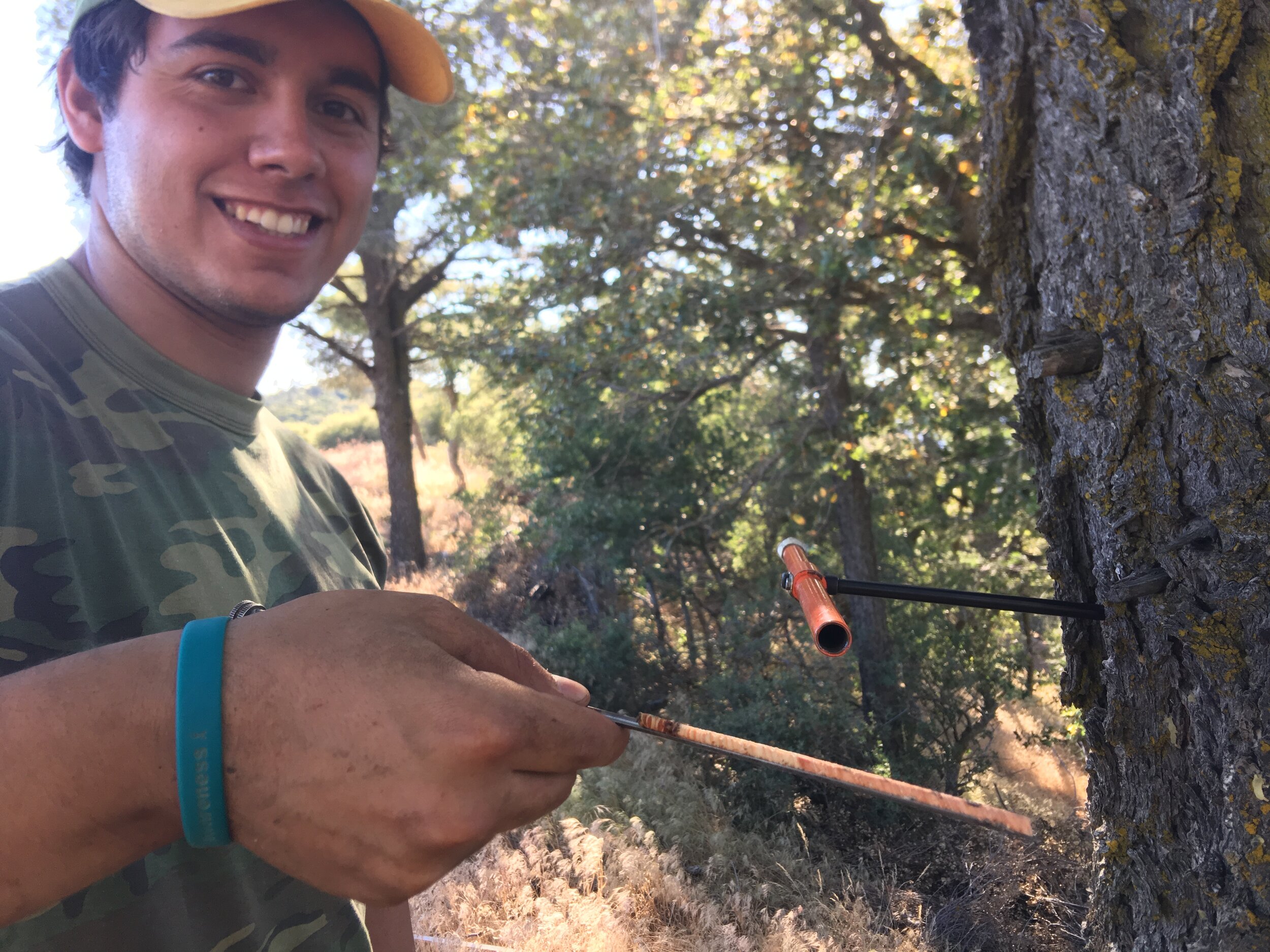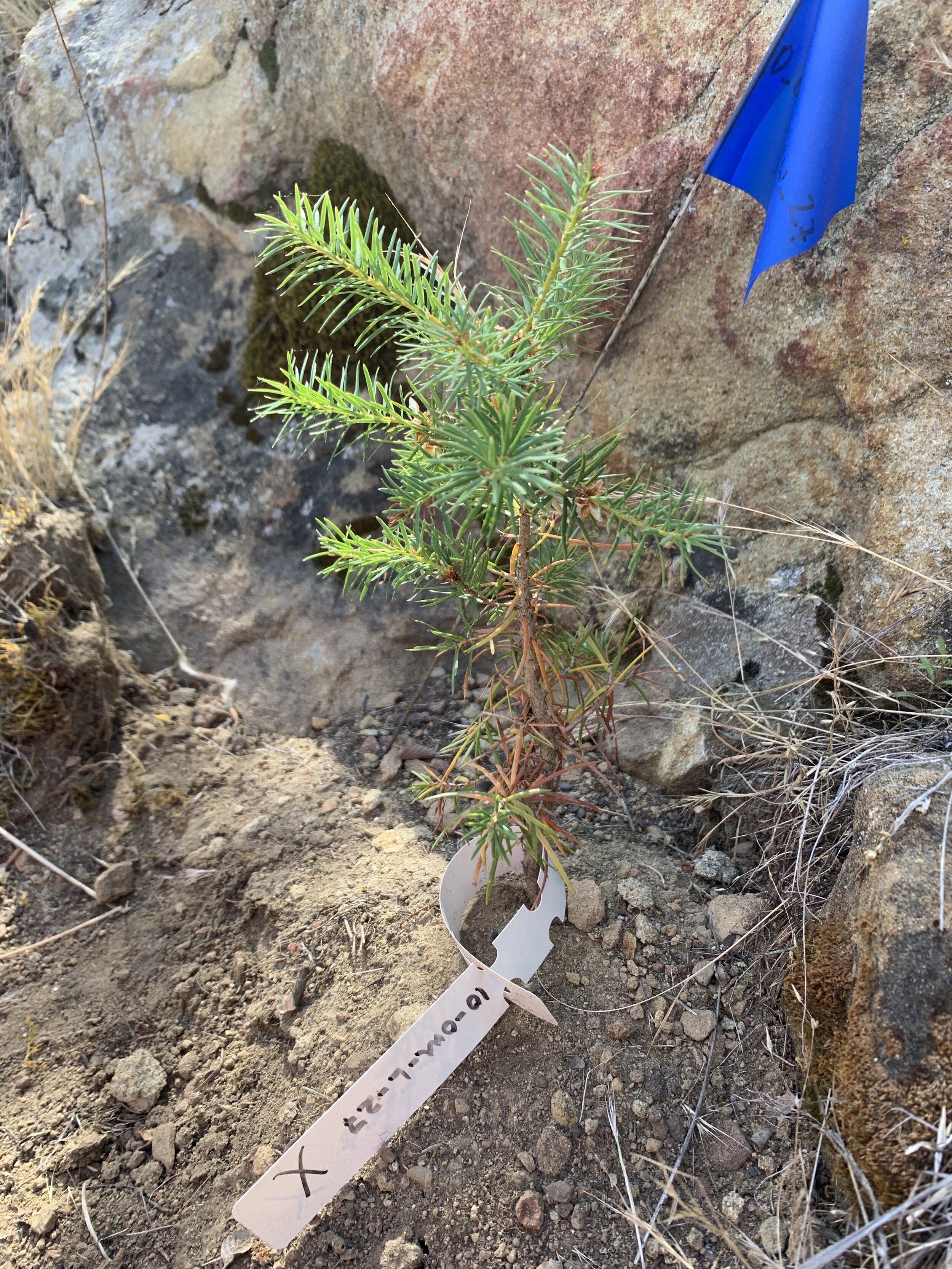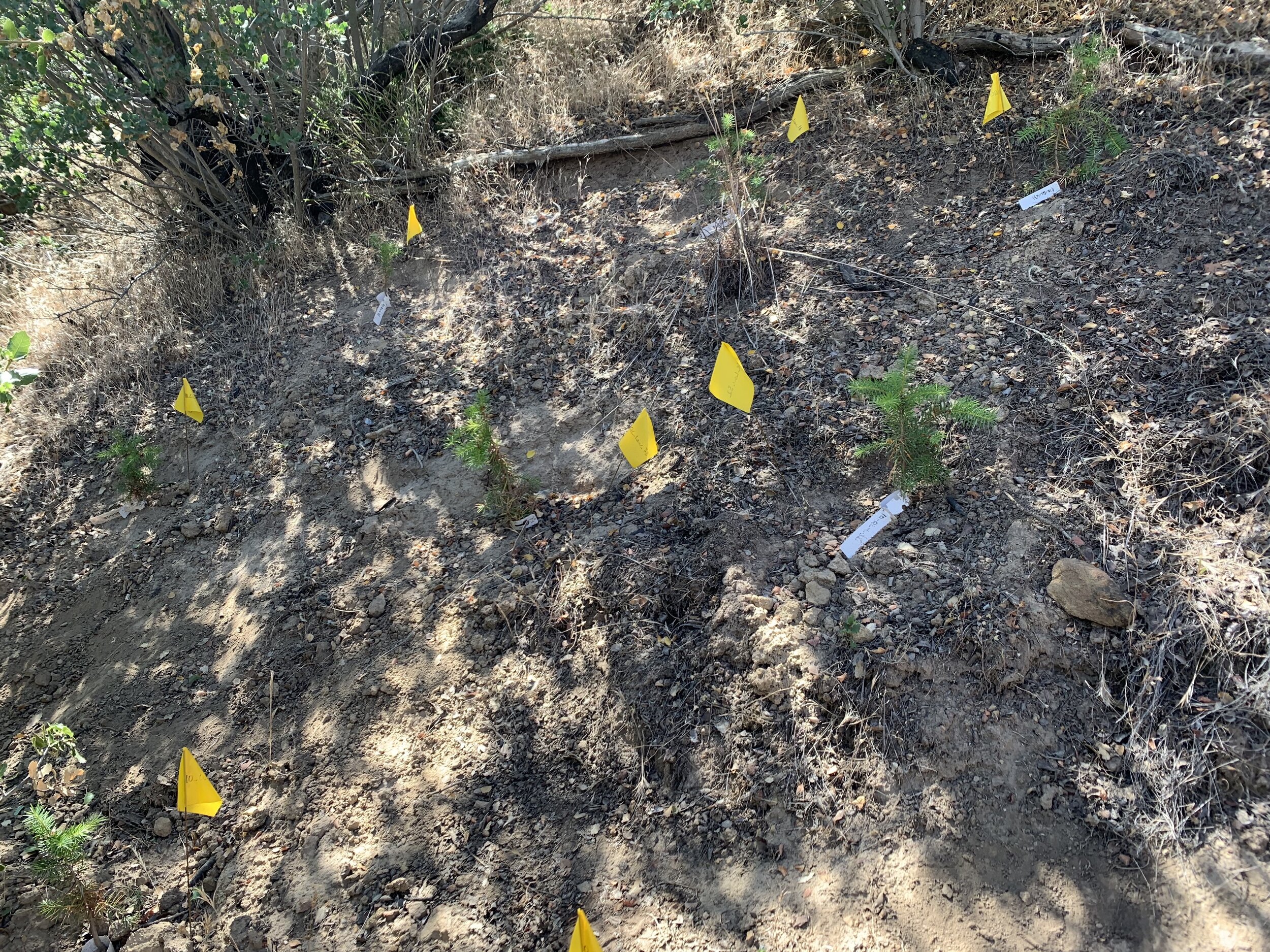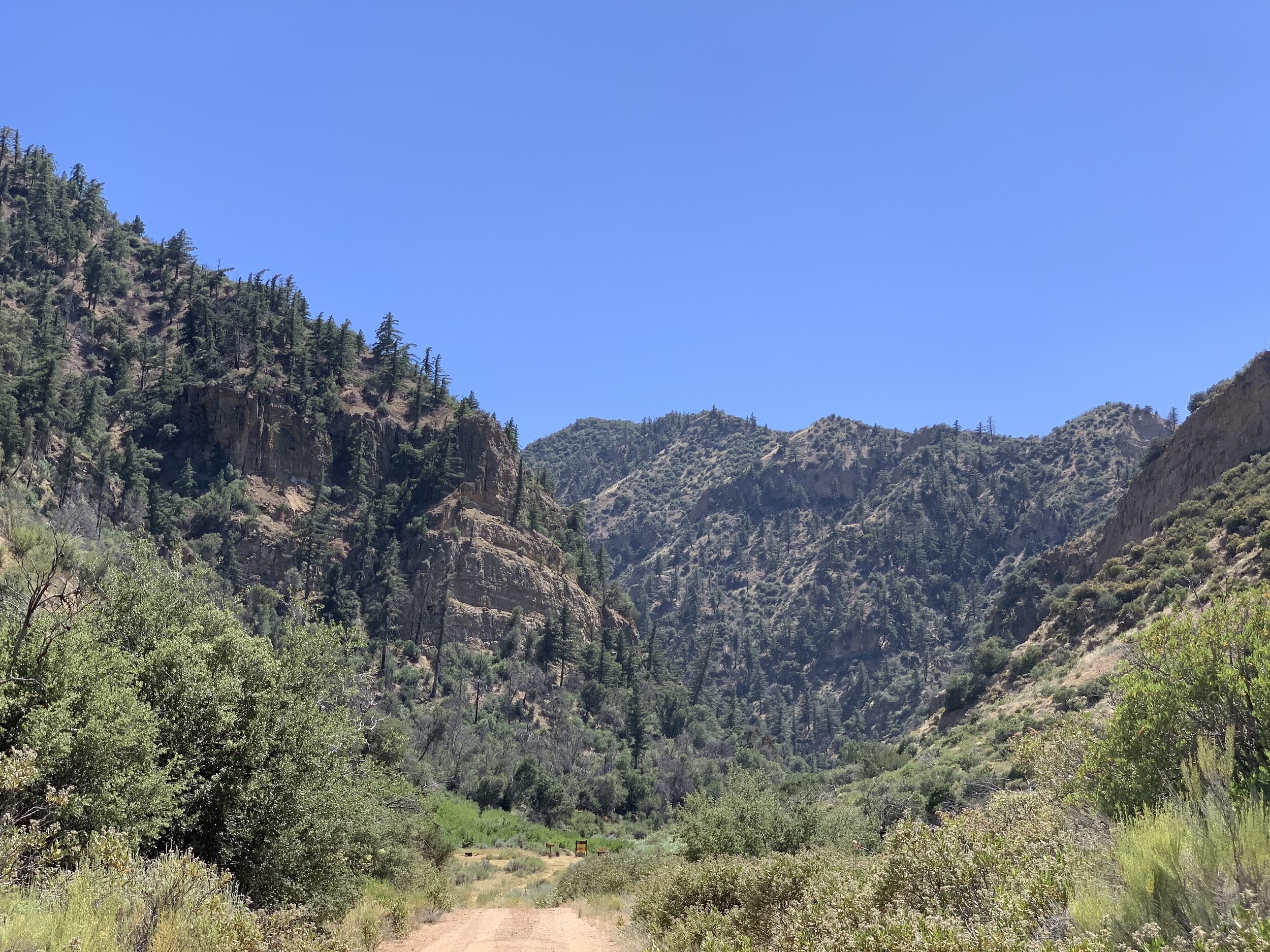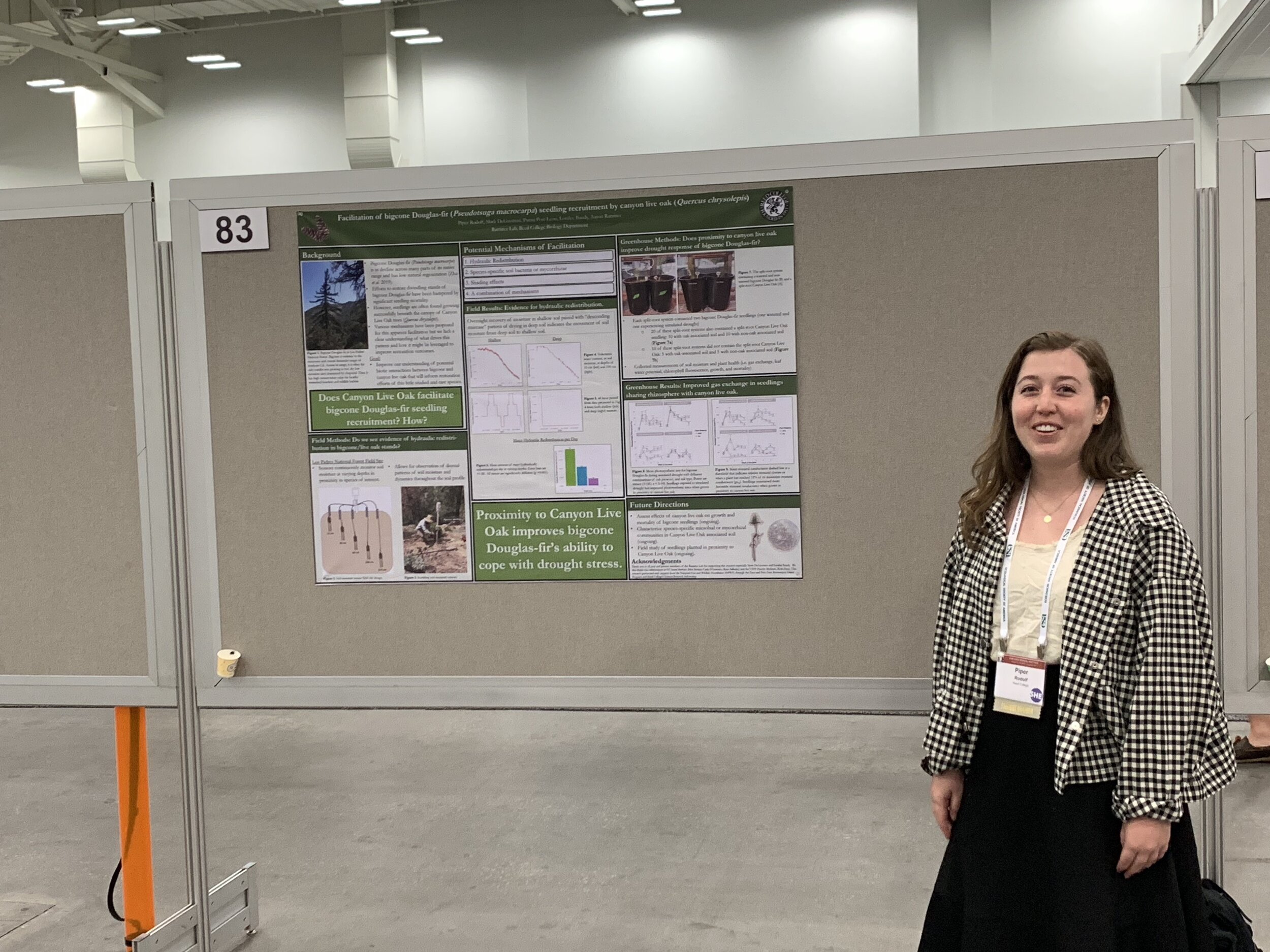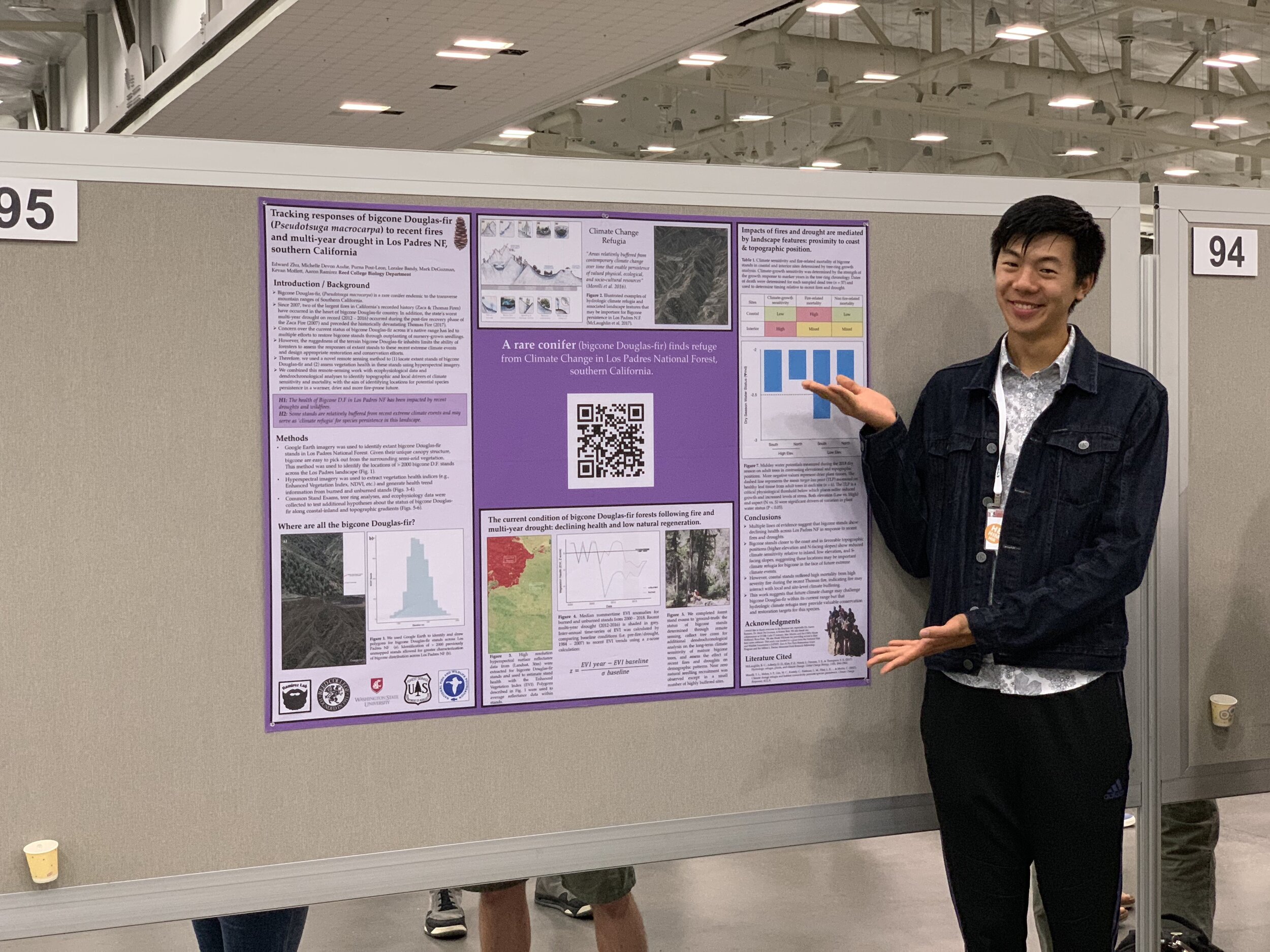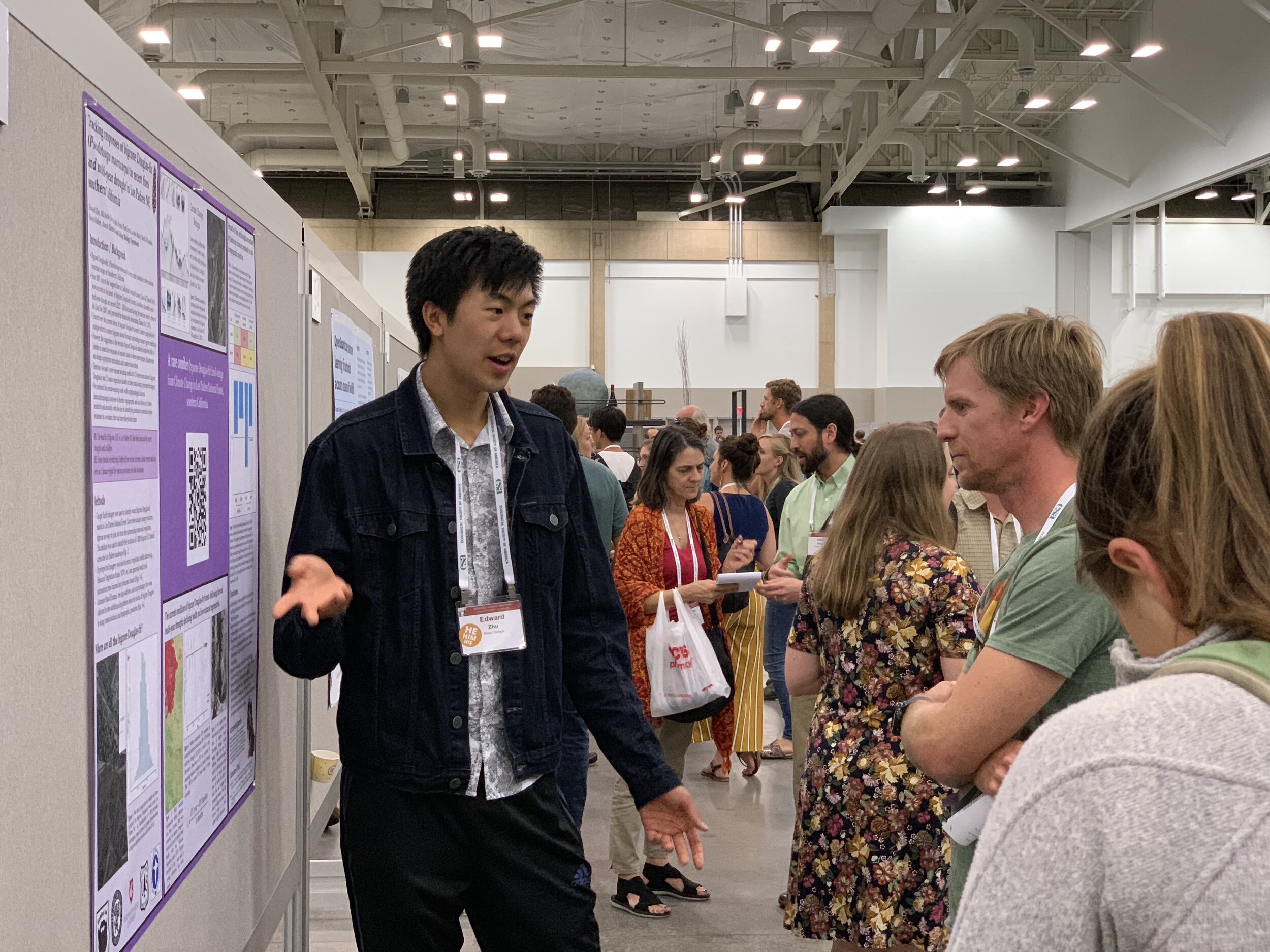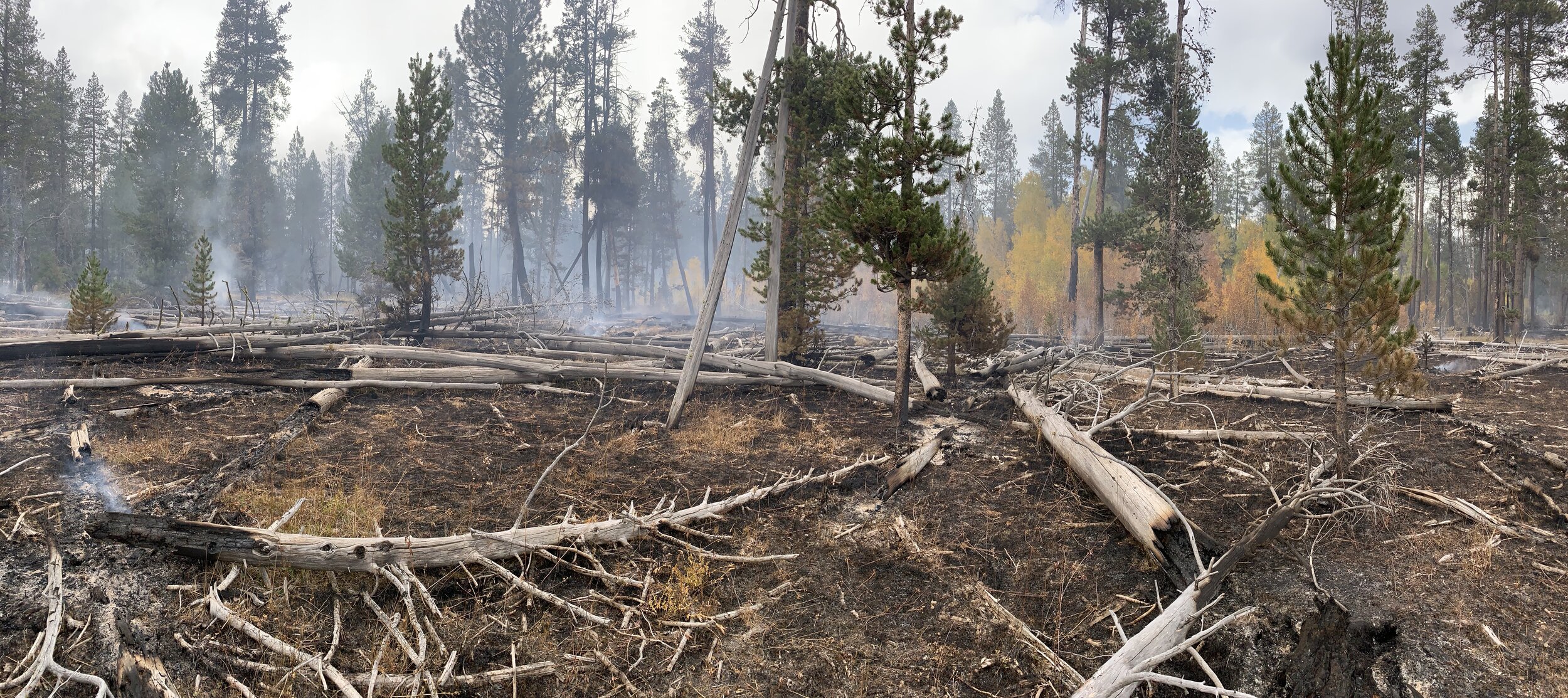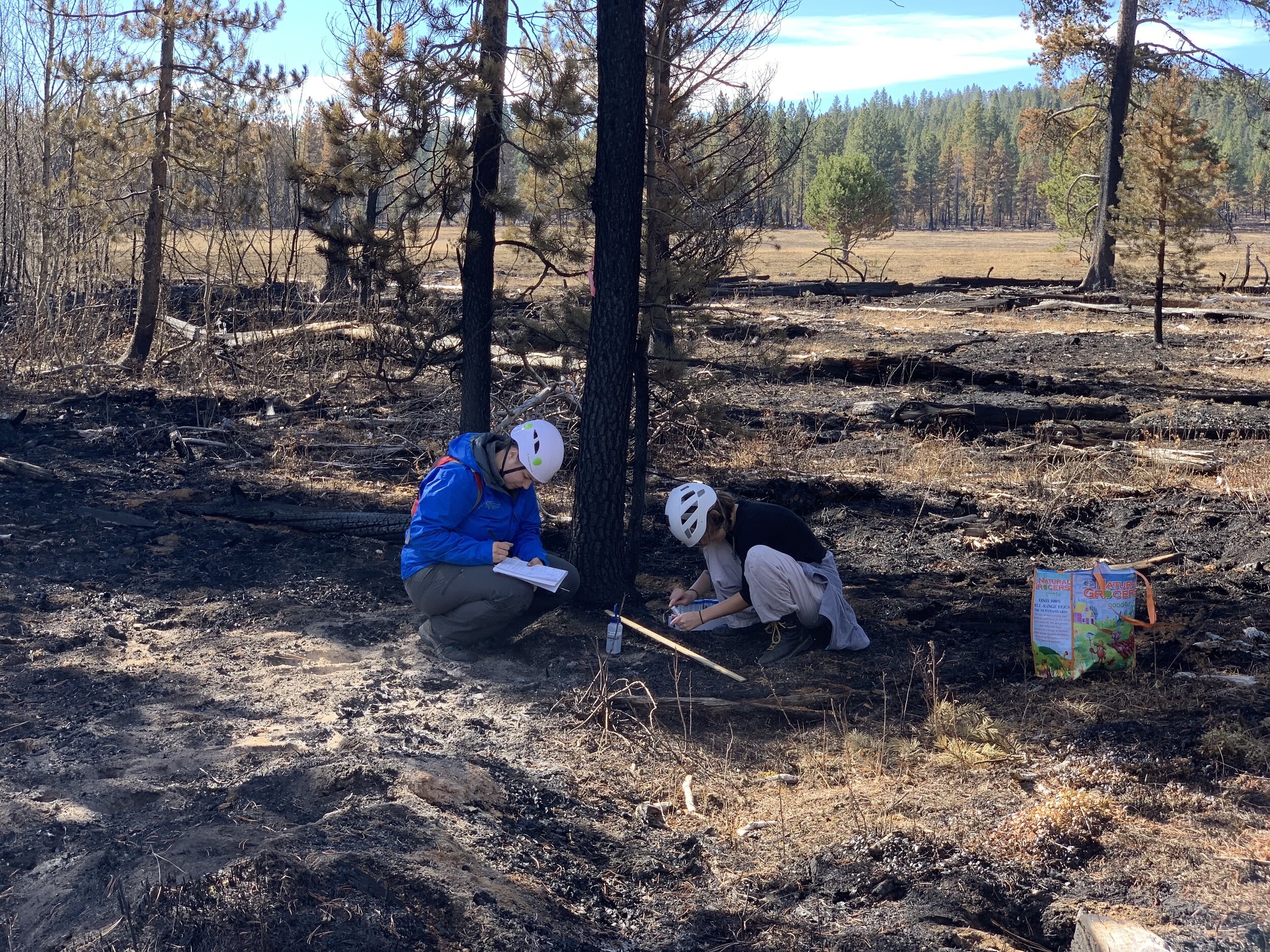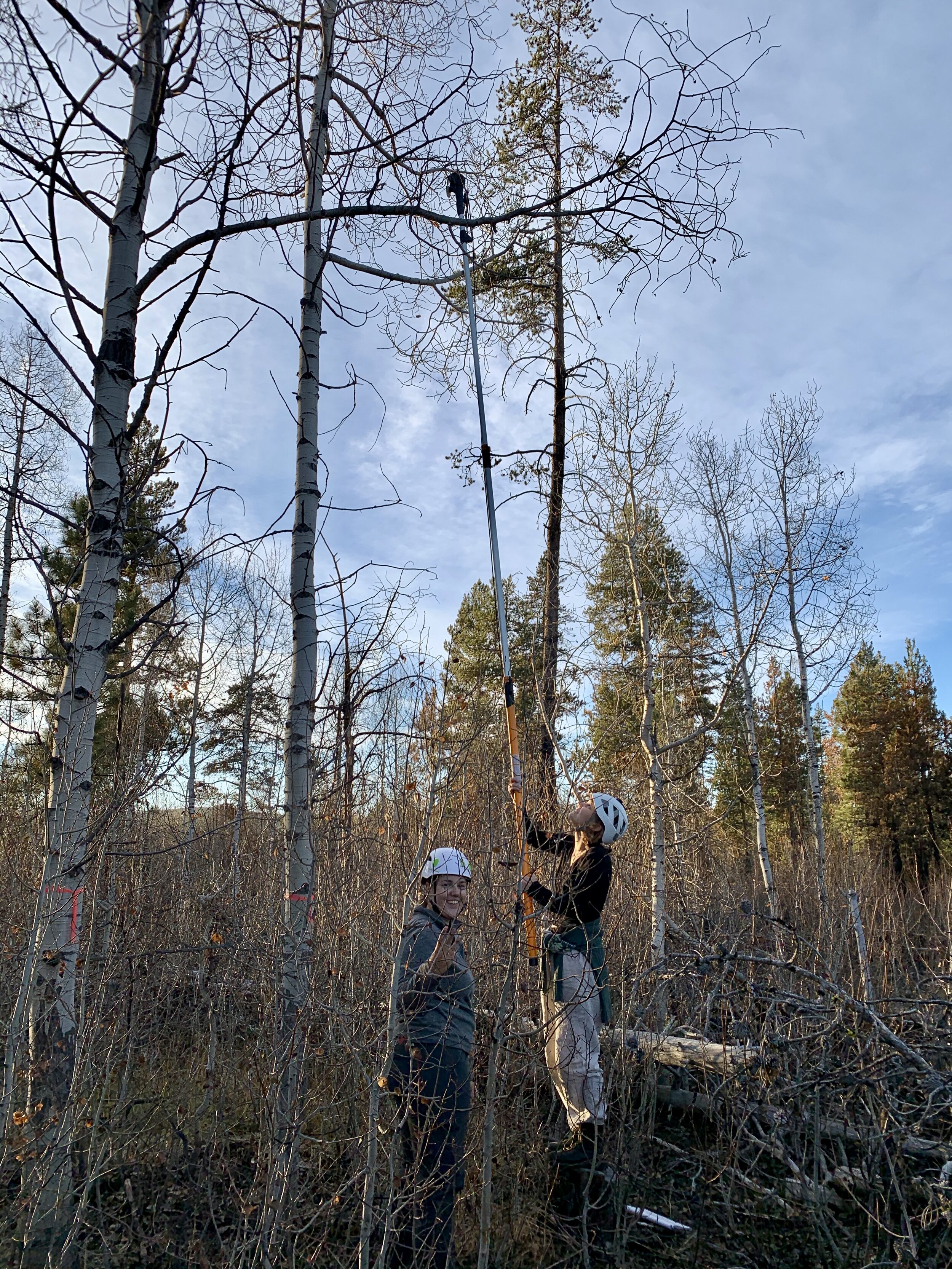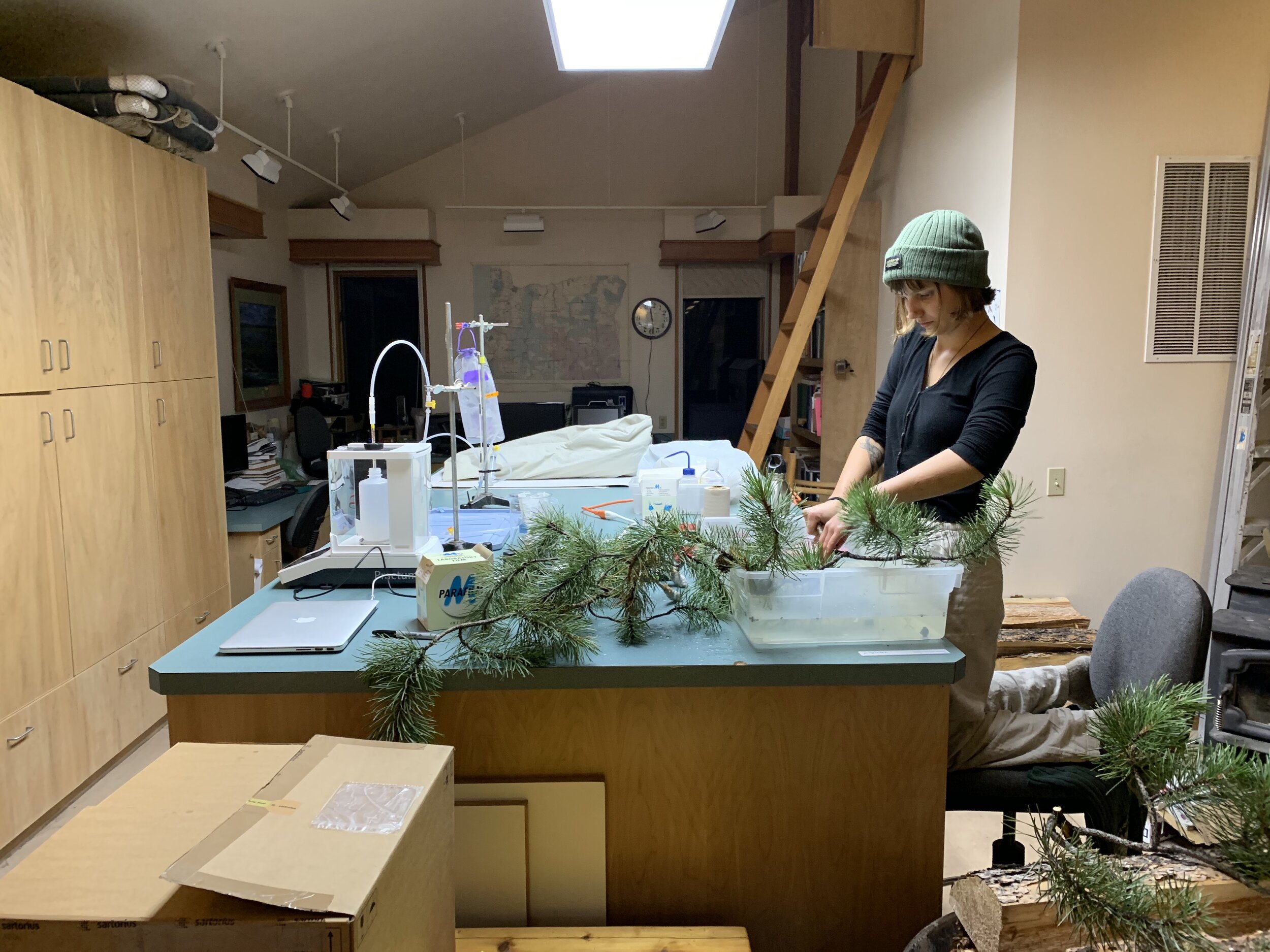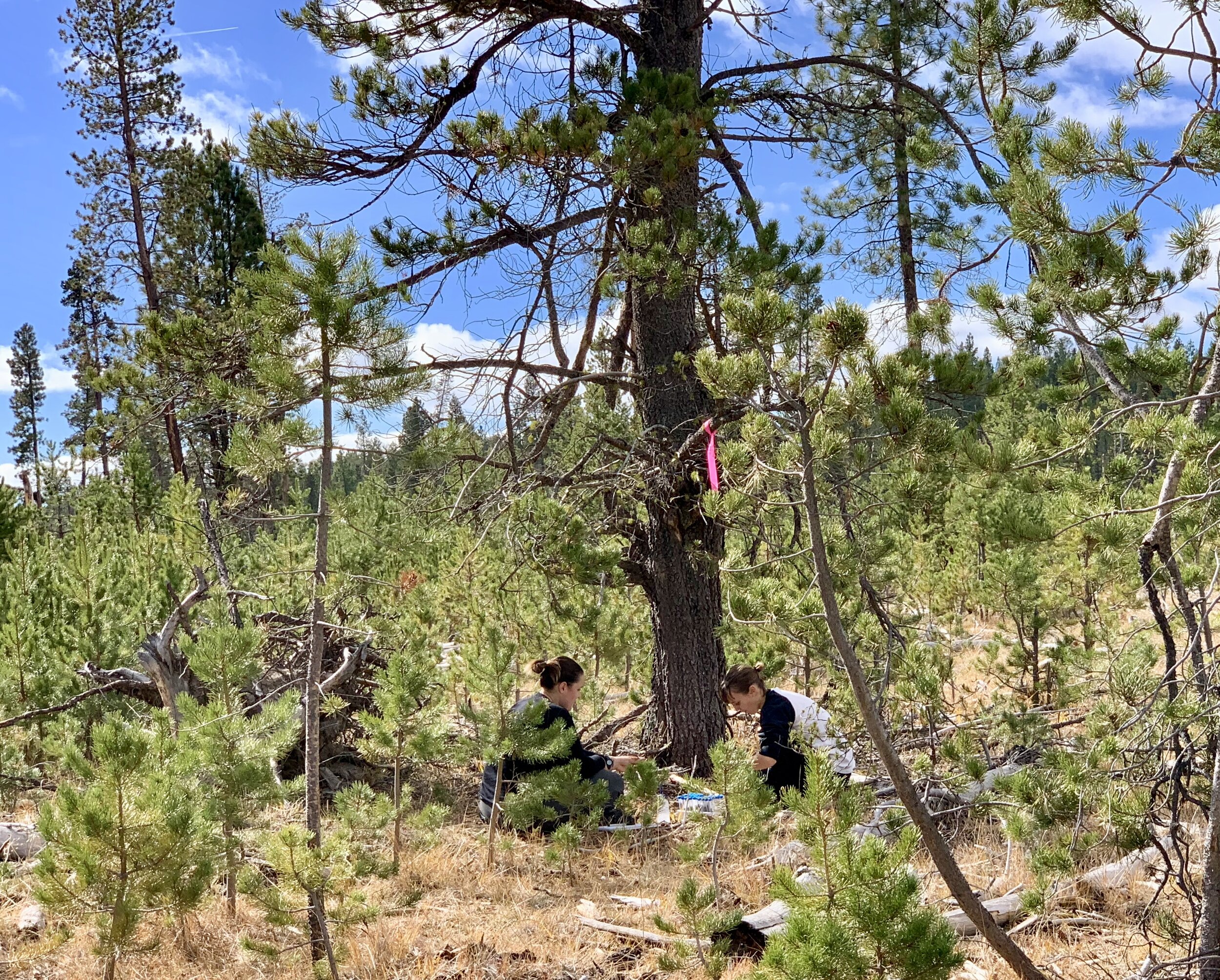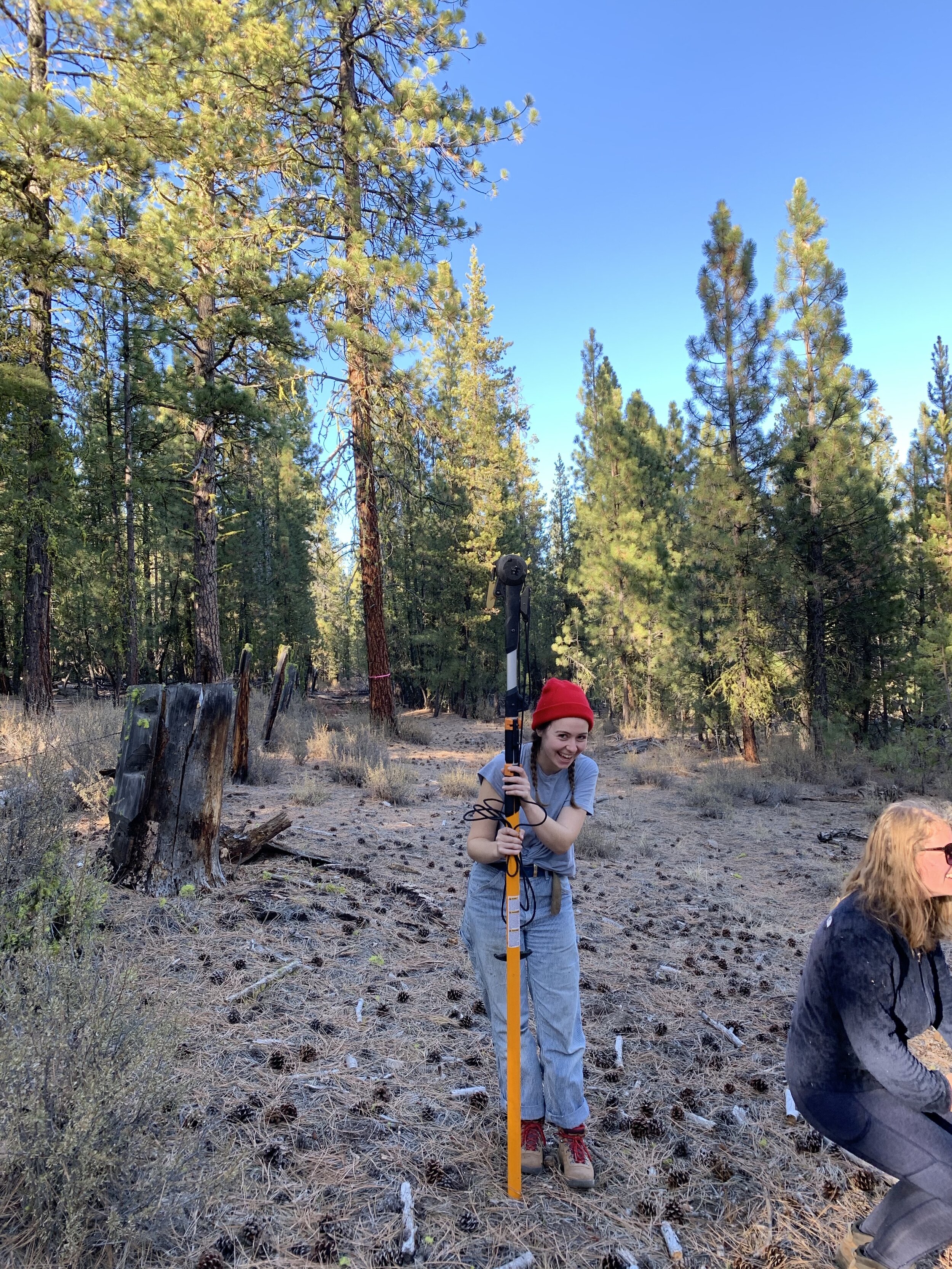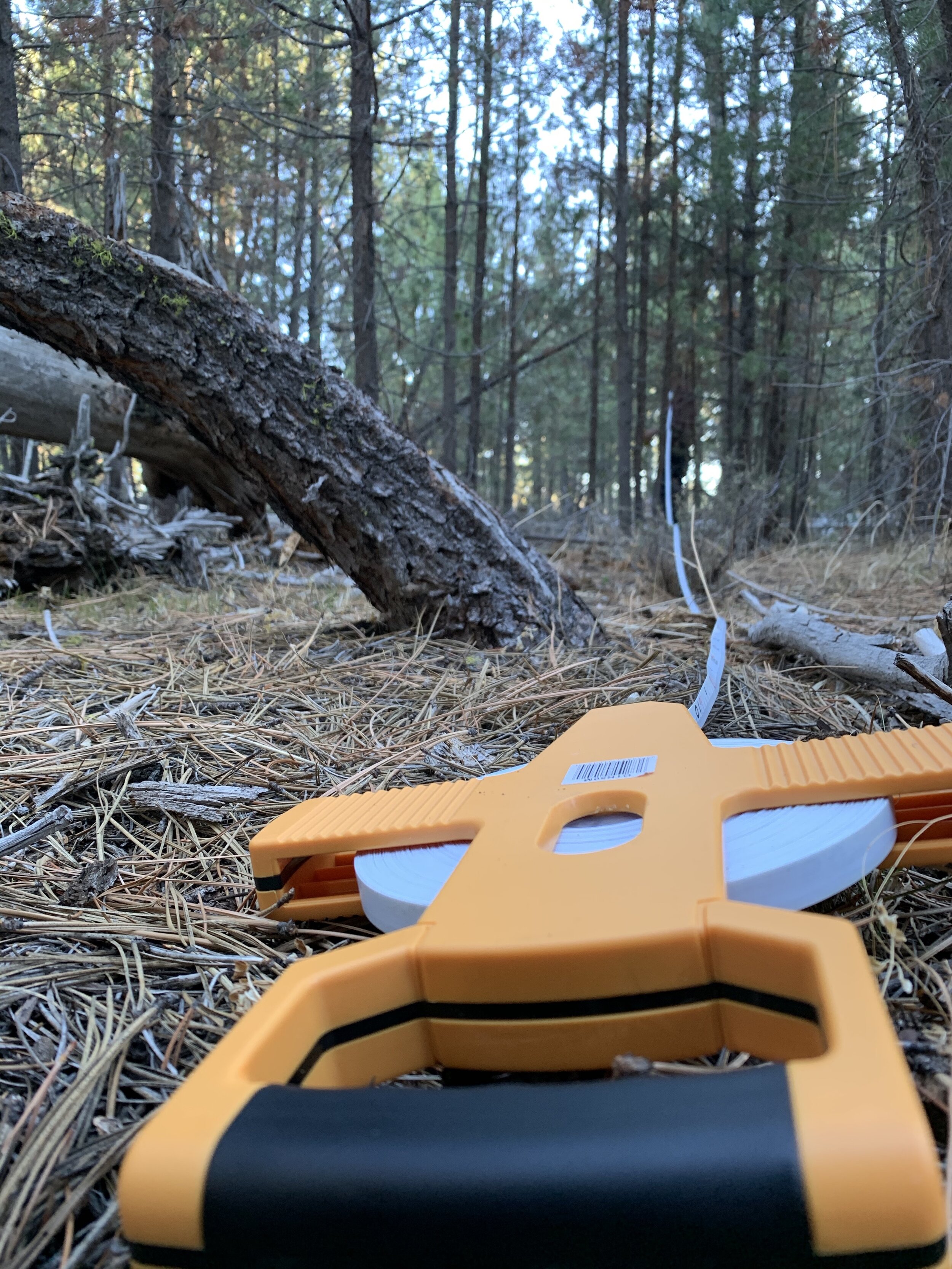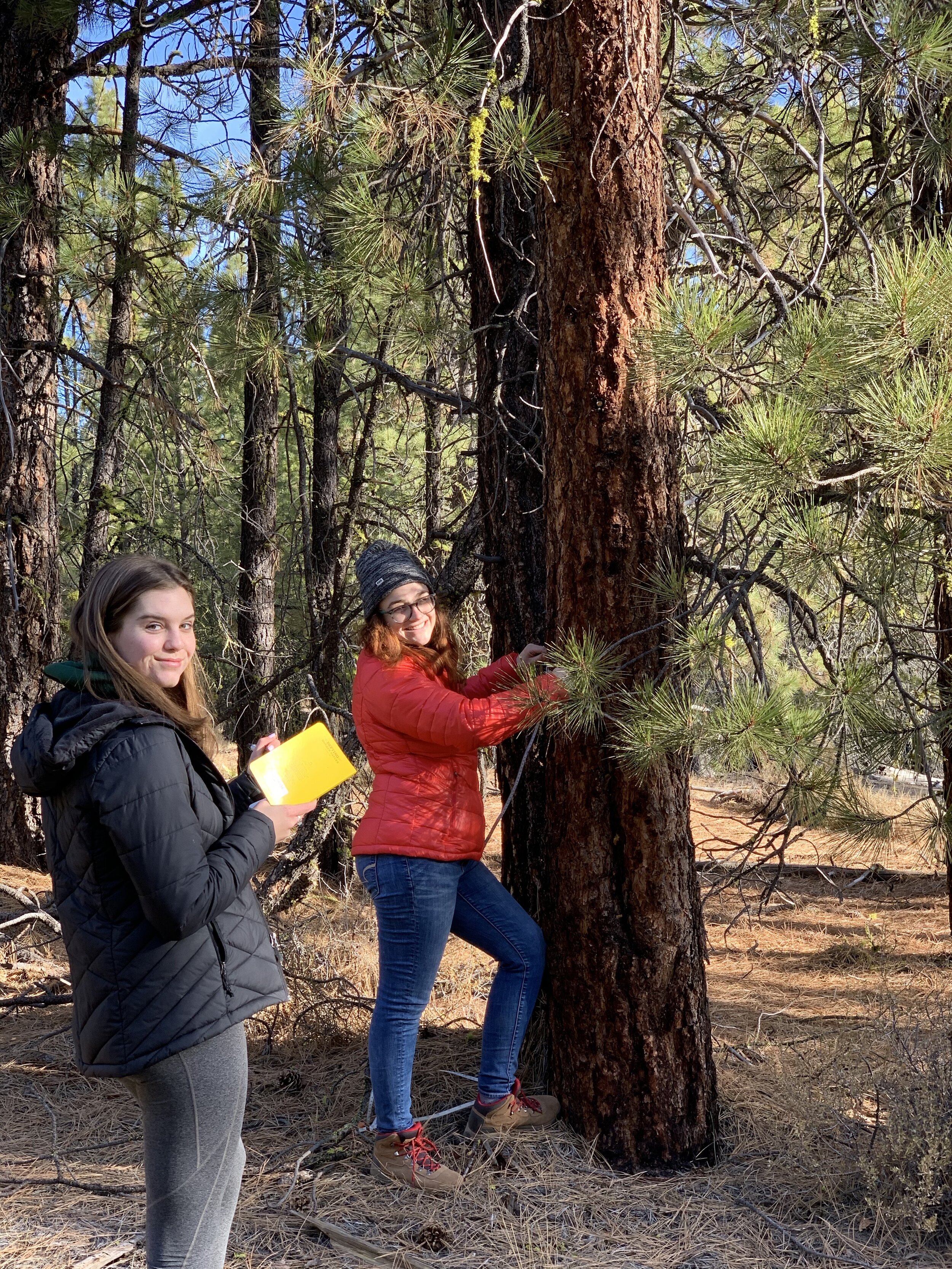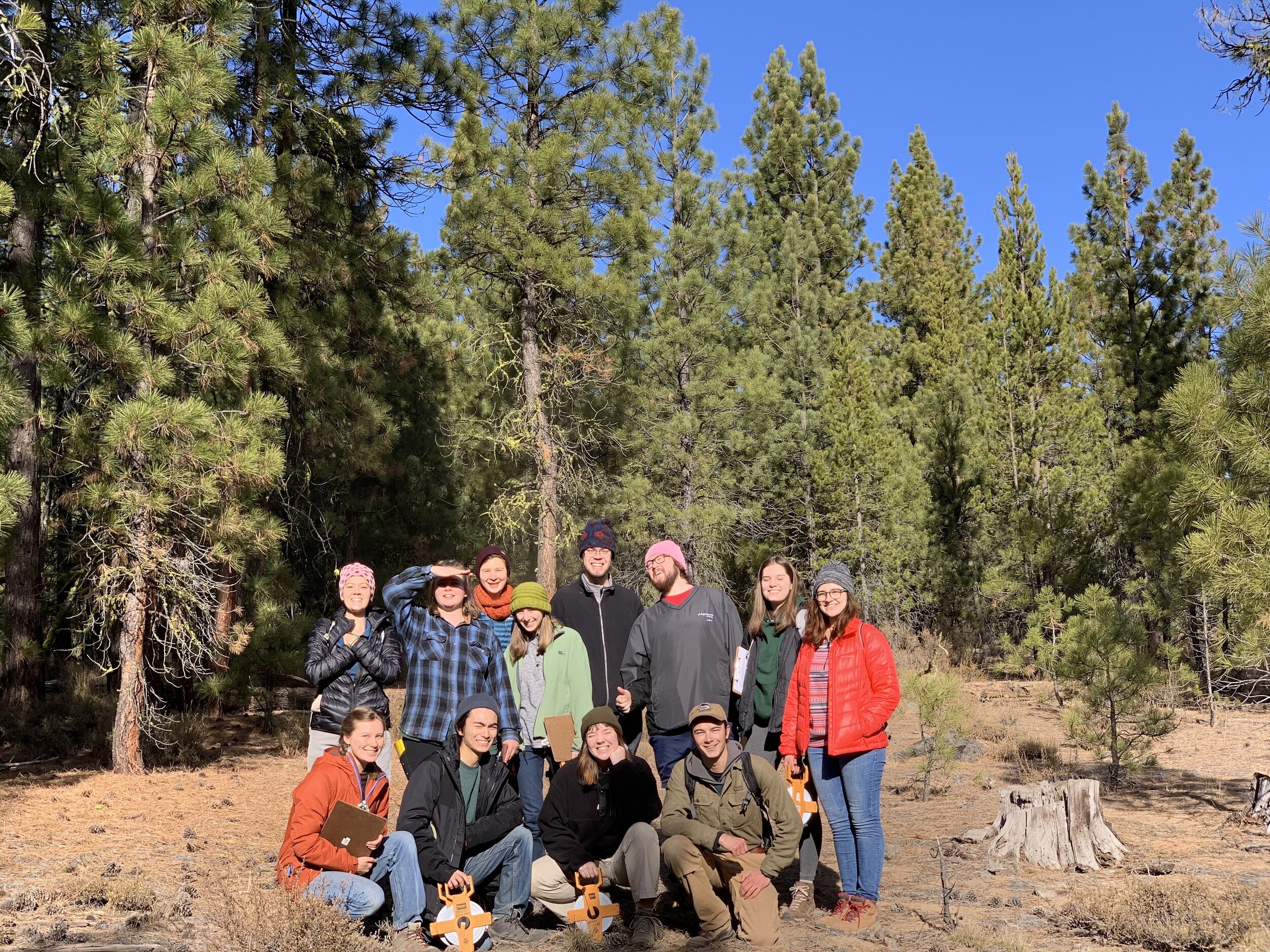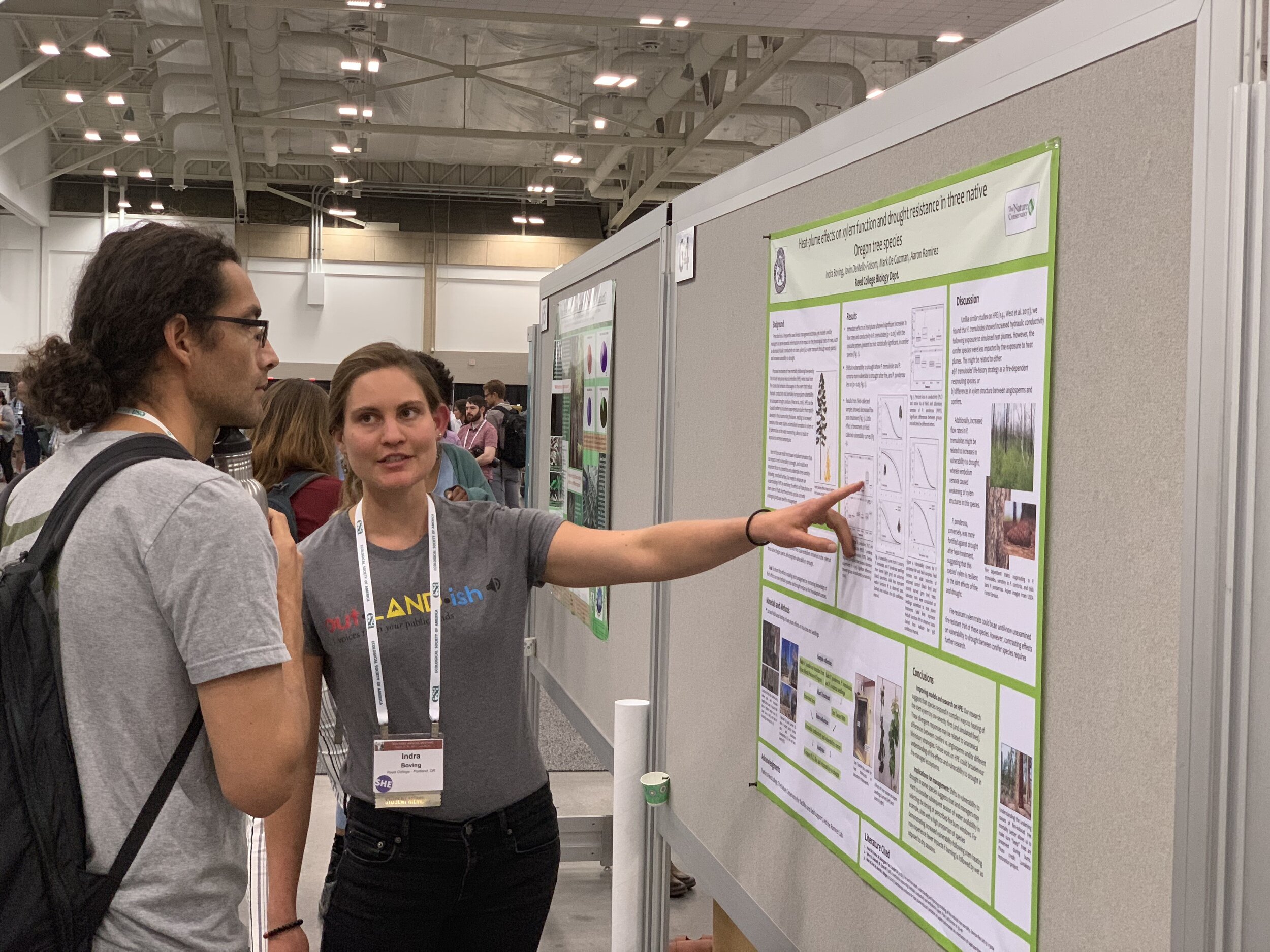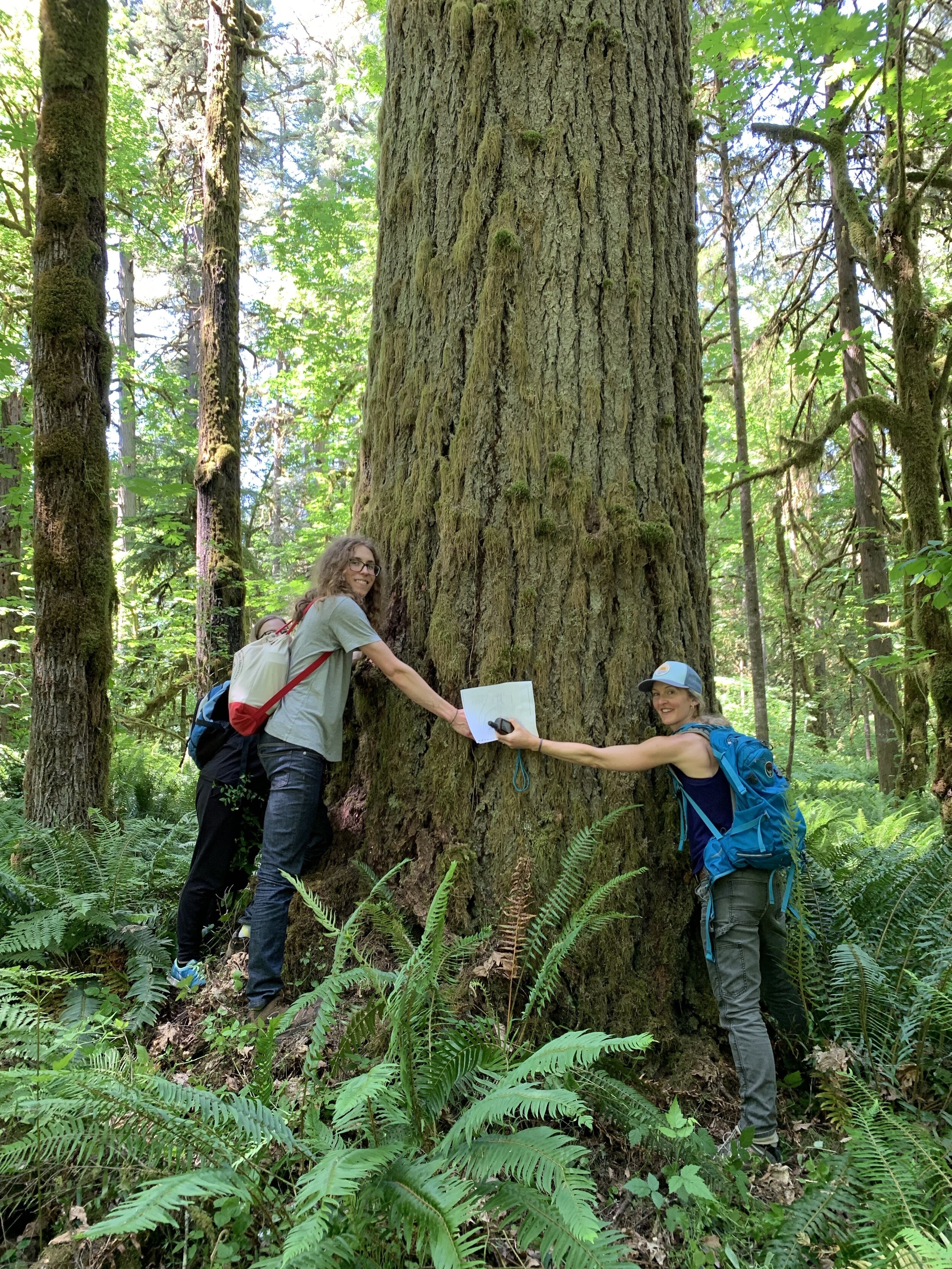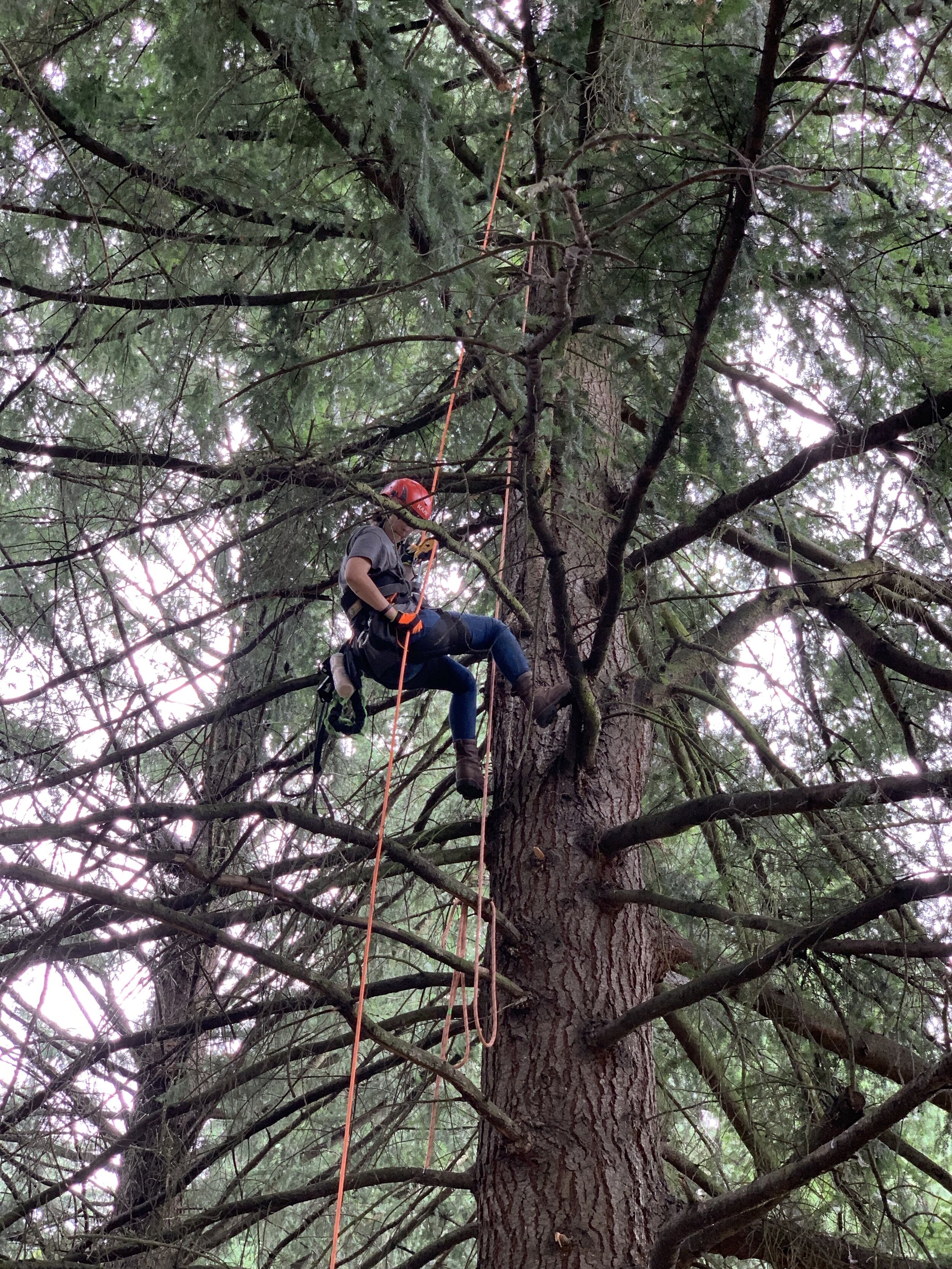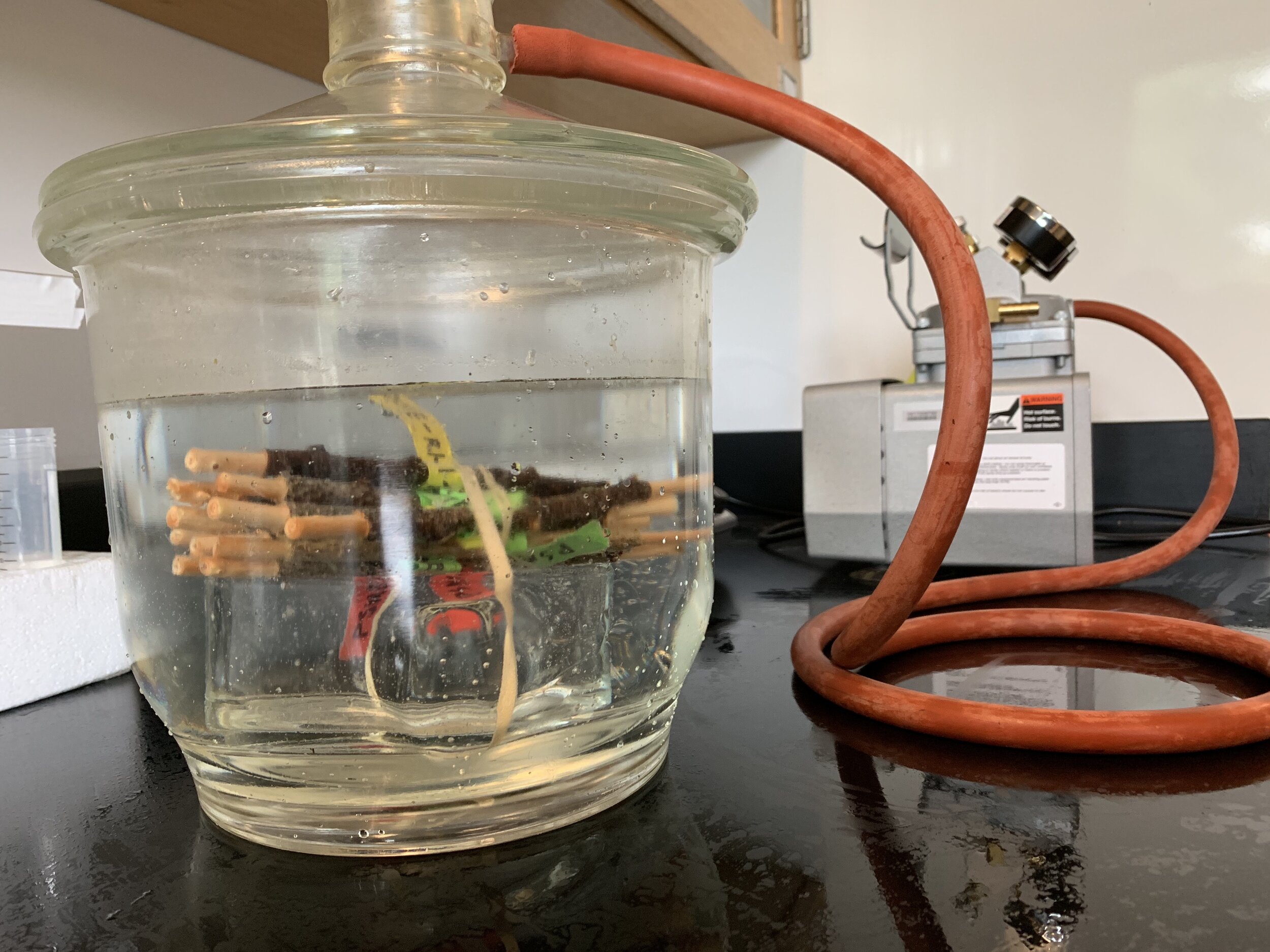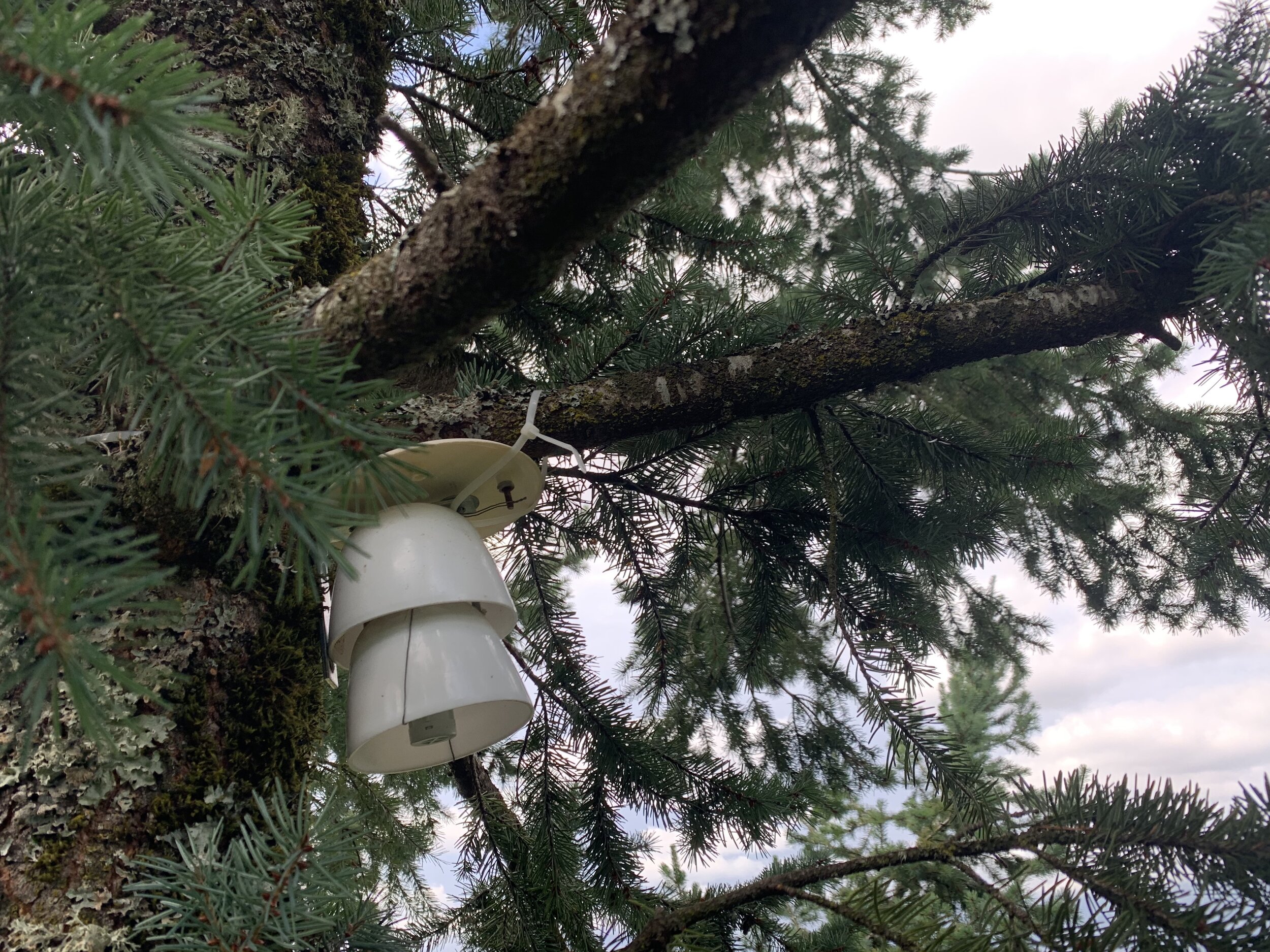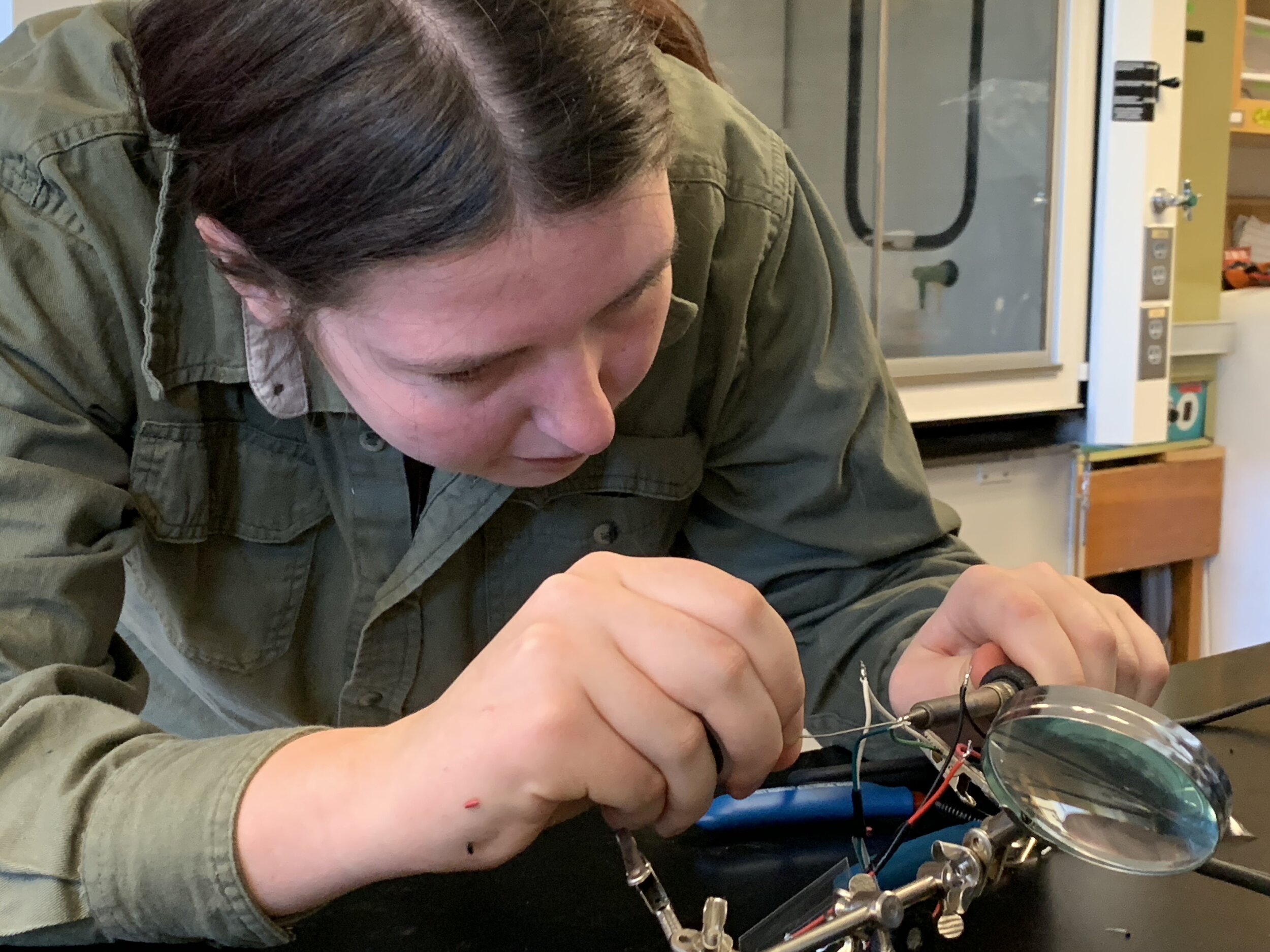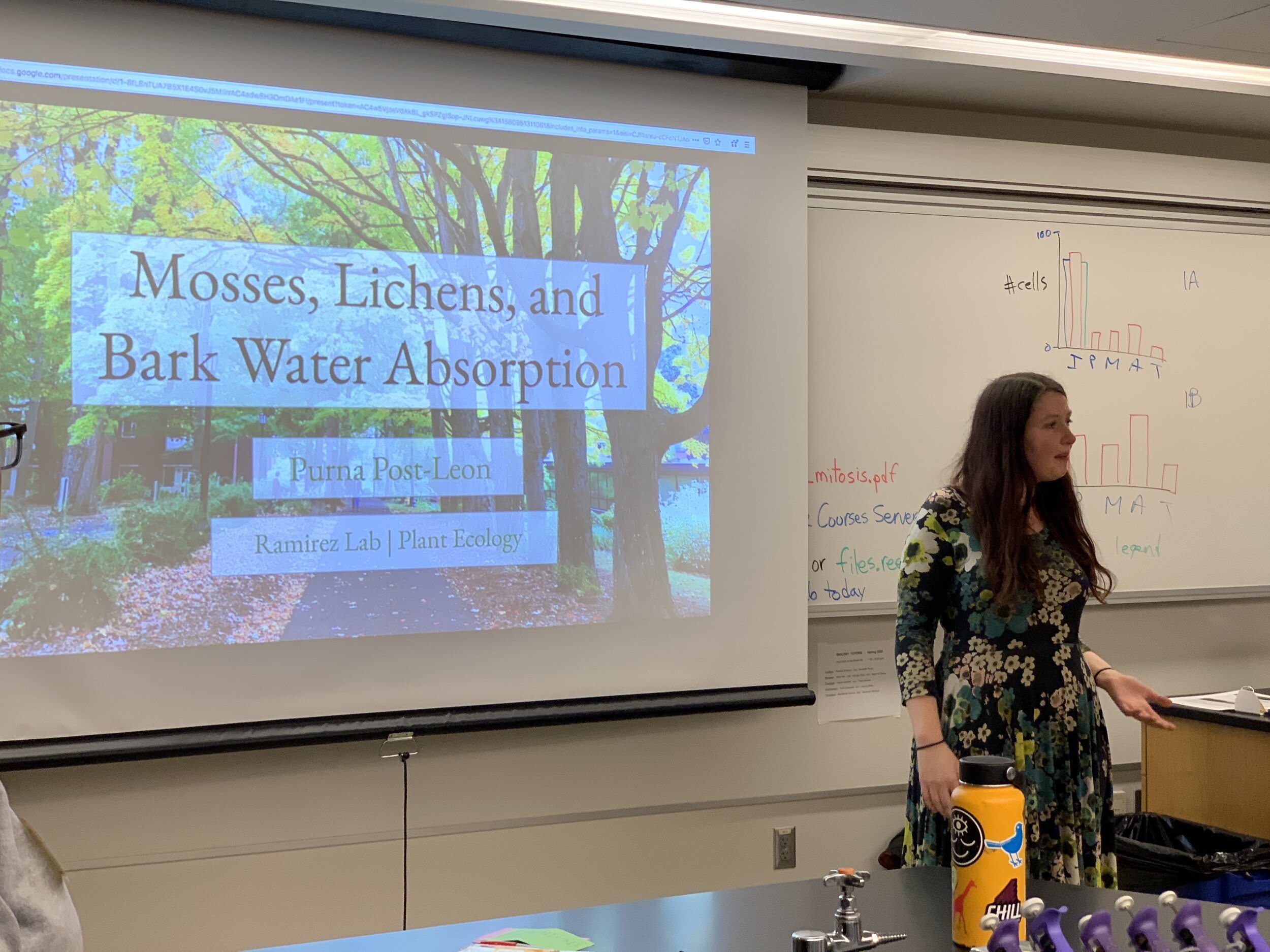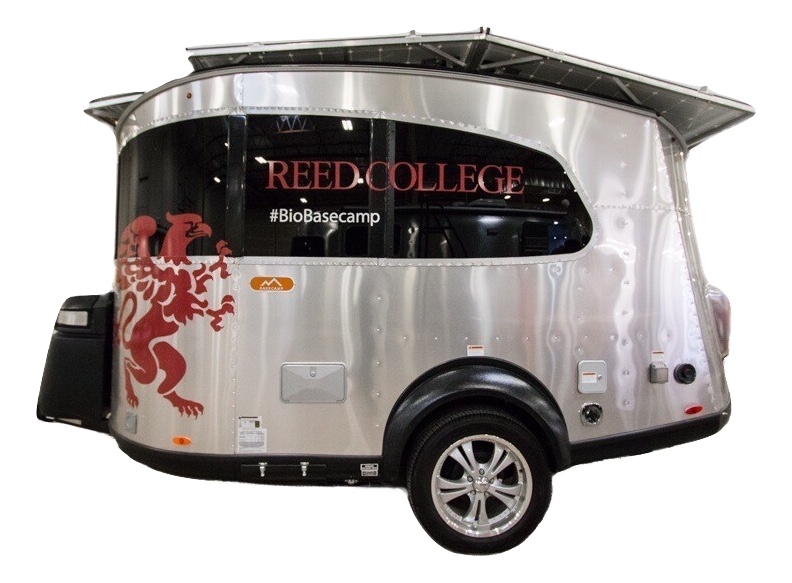
The mission of our student-led Translational Ecology (TE) research program at Reed College is to generate new ecological knowledge that addresses today's pressing environmental issues. To accomplish this, we look to natural resource managers and other decision makers to help us develop research questions and approaches that directly inform environmental management and biodiversity conservation. We believe that this "co-production" of new knowledge provides the best opportunity to address environmental challenges in a rapidly changing world.
"Just as physicians use translational medicine to connect the patient to new basic research, TE should connect end-users of environmental science to the field research carried out by scientists who study the basis of environmental problems.”
--Schlesinger (2010), Science 329: 609
Research in the Ramirez Lab is broadly focused on the impacts of disturbance (fire, drought, and global climate change) on the health, physiology, and management of trees and forests in the western US. Ongoing and past projects cover a wide variety of topics from adaptive management of forests to addressing socio-ecological vulnerabilities in complex urban environments. The backbone of each of these projects is a translational and multidisciplinary ecology approach that connects the underlying structure and function of plants to broader scales of vulnerability and resilience of trees and connected human communities.
Current Projects:
Adaptive Research and Management of Bigcone Douglas-fir. In the transverse ranges of CA, we are assessing the health and restoration potential of an endemic conifer species, bigcone douglas-fir (Pseudotsuga macrocarpa), following record-setting fires and drought in the region. Through both lab and field-based research, variation in plant hydraulic traits are being linked to long-term growth trends from tree rings and remotely-sensed vegetation health as a means of identifying priority conservation/restoration targets for bigcone douglas-fir stands in Los Padres National Forest. In addition, multiple undergraduate-led projects related to this work are digging into detailed questions such as: (1) the facilitation of bigcone douglas-fir recruitment and survival from drought by canyon live oak (Quercus chrysolepis; Piper Rodolf ‘19; Loralee Bandee ‘20); (2) the effects of topographic position on mature tree drought stress (Purna Post-Leon ‘20); (3) the effects of interactions between fire and drought on regeneration (Edward Zhu ‘19). The findings of this student-led research are being incorporated into an adaptive management plan for bigcone douglas-fir forests. The plan is concurrently being implemented/evaluated through targeted restoration outplanting and monitoring. This work is currently funded by the National Fish and Wildlife Foundation (Zaca/Piru Fires Restoration Grant Program; $250k; 2019-2021) and is a collaborative project between researchers at Reed College, UC Santa Barbara, UC Cooperative Extension, Washington State University, and the USDA Forest Service.
Prescribed Fire and Drought Interactions in dry-forests of the PNW. Active use of prescribed fire and silvicultural treatments are currently being used in dry forests of the PNW to restore native structures and functions to these forests (post 20th century fire suppression), as well as improve their resilience to climate change. We are using plant hydraulics to assess the risk of heat-induced embolism and post-fire hydraulic failure as a novel way of assessing the impacts of these intentional fires that may have important implications for achieving objectives of improved resistance and resilience to climate-induced stress. Recent evidence has shown that damage to the hydraulic system of trees may be a large driver of mortality patterns following natural and managed fires. Our lab has developed a method for simulating the effects of heat plumes on plant hydraulic function in the lab and relating these measurements to observed patterns of vascular damage and dieback under field conditions. Multiple Reed student projects (Javin Folsom-DeMello ‘18; Indra Boving ‘19; and Ariel Patterson ‘20) have advanced this work in collaboration with The Nature Conservancy through the Ashland Forest Resiliency Project (more information…) and through an international collaboration of researchers at Sycan Marsh Preserve (more information…; Article in Reed Magazine 2019). This research is funded through the Department of Defense’s Strategic Environmental Research and Development Program (SERDP; $2.5m; 2020-2023) and is a large collaborative project between multiple federal research labs (RMRL, USFS PNW Research Station, Alamos National Labs) and multiple US and international academic institutions, including Reed College.
Socio-ecology of urban trees and connected human communities. Our newest area of work is a collaborative and interdisciplinary research agenda to uncover the historical dimensions that mediate current-day socio-ecological dynamics in urban environments. In particular, we focus on tree canopies in US cities with a history of marginalization and discriminating land ownership policies (e.g., redlining) to understand the effectiveness of strategies for building healthy, equitable, and resilient urban socio-ecological systems. We are developing novel indicators of urban tree and ecosystem health by integrating recent advances in plant physiology, ultra-high-resolution hyperspectral imagery, and LiDAR. Current urban forest extent and vulnerability will then be examined at multiple spatio-temporal scales and in specific historical contexts to elucidate the role of socially-biased policies and practices setting the trajectories for inequitable and non-resilient urban tree-human dynamics. This project builds on our lab’s expertise in approaches used in rural forest systems to study and monitor tree/forest health by bringing these critical methods into highly important and socio-ecologically complex urban landscapes. Student-led research by Reedies has involved canopy-based research questions related to the vulnerability of large urban tree species (i.e. those that provide the most ecosystem services) to the effects of urban heat (Edward Zhu ‘19; Claire Brase ‘20; Garrett Price ‘21) and air pollution (Erica Bull ‘19), and the role of canopy epiphytes in reducing urban tree stress (Purna Post-Leon ‘20). This work is also being led by Ramirez Lab postdoc, Dr. Hannah Prather (NSF Postdoctoral Fellow, 2019-2022) and represents a collaboration between Reed College, Portland State University, and Washington State University. Funding for this work is currently being sought through the National Science Foundation’s Coupled Natural- Human Systems (CNH2) Grant Program ($1.6m; 2020-2023) and NSF’s Smart and Connected Communities (SCC) Grant Program (#150k; 2020-2021). More information…
Past Projects:
The Refugia Research Coalition: operationalizing climate refugia in natural resource management and conservation. Identification and management of climate refugia--areas relatively buffered from contemporary climate change over time that enable the persistence of valued physical, ecological, and socio-cultural resources--are an important part of conserving biodiversity in the face of rapidly changing environmental conditions. This coalition's goal is to increase the accessibility of climate refugia science and to build strategic partnerships for putting new refugia science into action. More information...
Translating the science of Ecological Drought for improved management and conservation decision making. As part of the Science for Nature and People Partnership (SNAPP), we are working with the US Geological Survey, The Nature Conservancy, and the Wildlife Conservation Society (WCS) to guide a working group of natural and social scientists from across the country to address the rising risk of drought through synthesis science and an interdisciplinary case-study in the Upper Missouri Headwaters region of Montana. More information...
The BioBasecamp
Removing limits to field research…
Our understanding of ecological systems is often limited by our ability to accurately measure organisms in their natural environments. Field researchers understand that leaving the controlled lab environment involves important trade-offs in the kinds of equipment and approaches that can be used. However, you also lose something when you bring organisms into the lab to study them--such as, the ability to observe and measure them within their true, natural habitats. Our lab has developed a solution...
Bring the lab into the field!
The Reed College BioBasecamp is a customized mobile wet-lab facility constructed within an Airstream Basecamp trailer. This mobile research lab runs off of 6, full-sized solar panels and a custom lithium-ion battery system that provides an indefinite supply of 110v power for running all of our lab-based equipment in a field setting. With this resource our students can utilize unique research methods and experimental designs that are difficult--if not impossible--for other labs to replicate. Follow us via the social media links below to learn more about our adventures in the #BioBasecamp!
